#And that ultimately led to the downfall of the entire kingdom
Explore tagged Tumblr posts
Text
Hollow Knight theory
The Hollow Knight actually was a perfect vessel void of mind body and soul but the Pale King grew to love him which made him an impure vessel
The only reason Hallownest fell was because of the Pale Kings love for his son despite the fact he was trying to save it
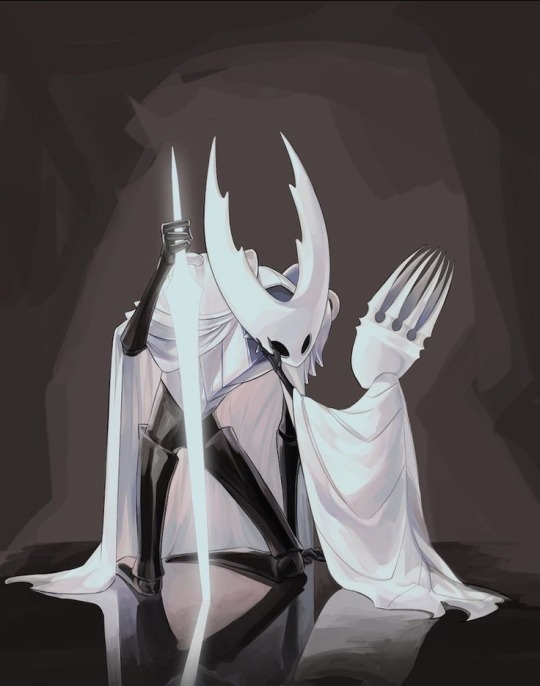
#I feel like this theory makes the whole story more tragic which I like#Like despite all the sacrifices he made the pale king still loves his son#And that ultimately led to the downfall of the entire kingdom#And even his own son#video games#gaming#hollow knight#hk#pale king#the hollow knight#team cherry#the knight#hk radiance
151 notes
·
View notes
Note
Hi!! :)) Sorry to bother you, but can you tell me more about Romeo and Juliet (TWSB)? I haven't started reading the novel yet, but I'm really curious to know more about them :(((
I beg you..
(Sorry for my bad English..)
Ooohhh Romero Riester and Juliette (Julite Statia) are definitely both interesting characters in TWSB, as they are, in some way, almost a cautionary tale for our current generation and cast of characters.
In summary, Romero and Juliette (which was the Riesterian/French pronunciation of her name that she loved a lot) were lovers, and since this was three generations ago when the Riester Empire and the Divine Kingdom of Venetiaan were not at war, people of the opposite countries could fall in love and marry each other.
Emperor Romero actually loved Priestess Julite, a daughter of the Venetiaan Count Statia, so much that he built her her own palace (he had actually been recorded to have tried gifting her a total of three lmao), which was placed directly behind Romero's in a symbolic declaration of how he would always be there to protect her, and how wanted to be the shield of his lover for life. It should also be said that Romero was a military and sword fanatic, so him being so adamant of wanting to protect Julite was indeed very romantic haha.
Simultaneously, knowing that Julite was from the Divine Kingdom of Venetiaan, Romero actually built a mana portal that would lead directly back to Venetiaan, so should ever Julite feel homesick and/or left to Venetiaan, she would always be able to go back and easily return to him.
This love for her, however, was also his downfall, as Julite was actually secretly manipulated by her birth mother Queen's of Venetiaan. As an illegitimate child, Julite has always wanted her mother's approval, and as such followed her orders of seducing and betraying so that her mother, Queen Lilianne, could infiltrate Riester with the goal of capturing its divine items for a certain goal (and this one is a whole other can of lore worms to unpack haha). As such, one day, when Romero was happily waiting for Julite to return, he was instead greeted on all sides by the Venetiaan using the very portal he had made out of his love for her. This incredible betrayal was the start of the war against the two countries, and Emperor Romero, being someone who has always paid attention to his country's military, was able to respond to the war in full gusto. At some point, he even gained a number of notorious titles and even became known as the "Tragic Lover Slayer"—Julite died around the age of 30.
The love story between these two in-universe is actually very (in)famous. Many historians and writers take an interest in Juliette/Julite Statia for being both a heroine of a grand tragedy, yet also its very villainess. Romero genuinely loved her a lot, and Julite also cared for him, but ultimately the manipulation of her mother led to the waging of war between both countries.
Bigger spoiler territory, but we actually get to see more of both Romero and Julite further into the novel. It's very complicated because the politics and lore of TWSB is just.... HAHA, it's a LOT and very complex and so so interesting, but anyhow Romero actually becomes a sort of.... ghost? guardian of this metaphysical almost after-life space where wandering souls gather ("White Space/Pure White Interstellar") and linger around. At some point, he even meets the MC Yeseo and friends, and even interacts with his great-grandson, Cédric, whom he counsels to not become a monarch like Romero did, and to make his mother proud by becoming a good ruler. Romero was an infamous war lord and magic swordsman, but after death, I think it's clear that he was in some way a decent guy deep down, just that the betrayal by Julite affected him so very much, and he even acknowledges his own actions (or at the very least feels regretful for how his actions ended up affecting the entire continent, but I think he, in after-death retrospect, realizes he wasn't a great Emperor for his people). His personality is kinda like Cédric's, but, well, all members of the Riester bloodline resemble each other in some way hahaha—only, after Romero's generation, they were all quite level-headed and firmly anti-war (unless direly needed) because of how much the Warring Era affected the continent. Cédric's mother, Frédérique, for one, is especially disdainful of her grandfather's reign.
As for Julite Statia... (oh it's so complicated. TWSB as a lot of lore wkdjdk) but basically even after death, she still seeks out the recognition of her birth mother, even if just once. She does, however, recognize that she hurt a lot of people who genuinely cared about her, and for that, she admits she can't and shouldn't be forgiven. She herself has even admitted to being an undeniable war criminal and traitor. Julite is definitely a tragic character, who, even after coming to her senses in death, still yearned for the love of someone who only manipulated her. Personally, I do believe she loved Romero, too—it's just that she also desperately wanted her birth mother's love and acknowledgement, as well. It's quite sad... Romero later acknowledges that Queen Lilianne was a horrible personal who would do anything for the sake of her goals, and while I can't quite remember, I think it is implied that he came to understand in death why Julite betrayed him.
But back to how these two are a bit of a three-generation ago cautionary tale—the original ML of the story, Cédric Riester, ends up occupying Romero Palace since he is the heir to the Empire. In turn, Juliette Palace, after Julite Statia's betrayal, has now been considered a Cold Palace instead of the future Crown Princess/Consort palace like it's original intention implied; and at the start of the novel, it is currently being used to house the political hostage Prince Jesse Venetiaan from the Divine Kingdom of Venetiaan, (who our MC Jung Yeseo transmigrates into).
A lot of the story actually put a lot of emphasis on the parallels between Emperor Romero and Julite State, in contrast to Cédric and our MC Jesse/Yeseo.
Julite Statia, the unacknowledged illegitimate child of a previous Venetiaan Queen, managed to worm her way into the heart of Emperor Romero and ultimately betrayed him for it. Similarly, Jesse Venetiaan, also an illegitimate child (though an acknowdged one) of the current Venetiaan Queen, also managed to worm his way into Crown Prince Cédric's heart. A recurring theme in TWSB is actually "history repeating itself", "sins of the past affecting the present", and a whole narrative of wanting to fix the mistakes of the predecessors for the sake of the current and next generation. So there's definitely tension that is instilled in the reader upon realizing the constant drawing of parallels between the characters' ancestors/predecessors and the main characters themselves, as they adjacently navigate life in ways reminiscent of the people before them.
Will Cédric be betrayed by Jesse? Can a diplomatic hostage from the Divine Kingdom be trusted? What will come about the relationship between two people when previous examples have ended so tragically? I believed the way Romero and Julite have affected the plot despite having been deceased for decades already by the start of the novel is so so so very interesting hehe. I'd definitely recommend you read the novel if you haven't started already! One of the greatest joys is slowly being able to piece together the parts of the novel's lore and discover how much depth there is in this world 🥹👍
Hope this was insightful!!!
24 notes
·
View notes
Text
Going through my drafts & didn’t want this Clariel review to go to waste in case anyone relates:
I want to complain about Clariel by Garth Nix for a minute.
First of all I loved the book, it wasn’t as good as the others but it was still an Old Kingdom book and I really appreciated that Garth is willing to write such fabulously powerful female characters AND that he gave Clariel the power of being a berserk & didn’t play it off like being a berserk is an inherently bad or evil thing, in fact when Clariel meets her grandfather he’s like ‘oh you’re one of these, I know just what to do with you!’
I love that Jaciel’s berserk energy is unleashed in it’s full power and we get to see that being a berserk has huge advantages and can be extremely positive, while also not shying from the inherent dangers it holds. Idk, I just love that we get to have a powerful, angry female character and it’s not played as an inherently bad thing, even though it’s ultimately Clariel’s downfall in a way (but not really - her temptation to use Free Magic isn’t quite a one-to-one transfer from berserk to her going dark side in the end).
Anyway! The complaints!
-quite honestly, I didn’t think Clariel was evil enough. If this was her origin story, it only...kind of told how she actually turned evil? In the end, Clariel is still a good-hearted person with no intention to do wrong by anyone, and even asks to be killed lest she turn into a monster and the people around her are like ‘nah, you’ll be fine’ and send her off to peaceful exile. That’s just...not a very compelling evil character, is it? She just, what, wanders the desert long enough she succumbs to her temptation, which everyone knew about, and they were perfectly willing to set her off on her own, knowing what she could do and would do again if chance came along? That doesn’t sound like Clariel’s problem to me. Also, at the end of the book Garth himself jumps in as the narrator to try and moralize Clariel’s actions: “a girl who did not make very good choices in life.” I mean... what else was she supposed to think, and how else was she supposed to act, given that literally nobody was doing their fucking jobs when Clariel was alive? The king & the Abhorsen were all very much shirking their responsibilities, it’s the entire plot of the book, and Clariel’s...what, bad for being the only character to try and do something? What, she’s a bad person for not seeing the future like the Clayr, for not trusting untrustworthy people to do their jobs when they clearly hadn’t been, like what the fuck was Clariel literally responsible for. Yes, she uses Free Magic - but only because it’s the only power she has that’s strong enough to make any change, when literally everyone around her is acting like a goddamn clown. I’m sorry, but that doesn’t sound like a bad guy to me. The actual moment Clariel actually turns even is, you will note, not even IN this book about her supposed evil origins. Clariel ACTUALLY succumbs to evil somewhere later after this book is finished, alone and driven to insanity by Free Magic in the forest, one would presume. We never get to see that moment as a reader so even though we now know everything else about her, we still don’t know WHICH character flaw precisely led to Clariel’s downfall, which if you think about it is kind of the only reason this book even proposes to exist.
-and on that note, why the fuck does Belatiel give Clariel the bronze mask back in the end? It was pretty contrived. Wouldn’t the mask hold only terrible, awful reminders for Clariel, a reminder of a time she went awol and almost got the king killed & one of the charter stones broken with his spilt blood?? A time she betrayed the kingdom, consorted with evil beings who in the end betrayed and almost killed her, a time when she was seen as a pure villain, and she actually did get several other innocent people killed, lets not forget that, so it’s also a reminder of the time she became (indirectly) responsible for murder? Again: why the fuck would Belatiel give Clariel back the mask after they healed her? It almost welded to her face while she was using Free Magic and they had to pry it off - it’s just so contriiiiived. Like, I get it: she’s Chlorr of the Mask, The Woman With No Face, so she has to have the mask in the end. But the way she gets it? Is just so forced, like the entire plot that fails to convince me she’s this ‘evil’ person. My real question is why not just go for it and make her evil? That’s what we all signed up for when we opened the book, isn’t it? We all, as readers who’ve read the rest of the Old Kingdom books presumably, know that Clariel is going to end up as an evil necromancer, and later one of the Greater Dead serving Hedge to free Orannis. So why not make that what this is, and give her a convincing story arc that actually shows her descent into evil? She’s way too sympathetic, way too good hearted, even by the end. Just make her evil! She has all the potential, it’s right there - all of the pieces have been set up, but Garth just won’t (or can’t) do it. She’s angry, she’s antisocial, her mother and father are killed and she’s had a taste of power and lusts after it: can’t she just...you know...be a bad person? Is it that hard?
-Lastly, and I know this isn’t important, but in the beginning when the fisherman gets the bottle with the free magic creature trapped inside, and it’s mentioned the bottle was 900 years old, I was really hoping that we were going to have this sort of historical...ancestral line of evil from way, WAY back reaching through time to Sabriel & Lirael’s time via Chlorr. I was hoping that 900 year old creature was what would ultimately possess Clariel, or influence her and become her companion throughout her necromancy career (if you can call it a career?), and that it’s just this long legacy of evil tracing back to who-knows-how far back, maybe left to the reader’s imagination. Anyway. That’s a small bone to pick, but I thought that’s where it was going originally and I still hold that that would’ve made a better story.
4 notes
·
View notes
Note
I’m curious but also eager to know what lore you have on the most amazingly beautiful game in the history of games
I would firmly establish Resh's existence.
No murals, no hidden stuff, no metaphorical cutscene. Just there and done; "this is the king. They do exist in the lore and they did have something to do with the end of the kingdom. It may not be their entire fault because this was a collective destructivew choice, but they were involved."
And then, the season will be about the journey the elders and Resh have gone on. What led them to their destruction and how the hubris of the kingdoms people and elders was ultimately their downfall.
The ult would be the scrapped crown idea, taking all of the hearts of the spirits to obtain it (similar to the prophercy mask)
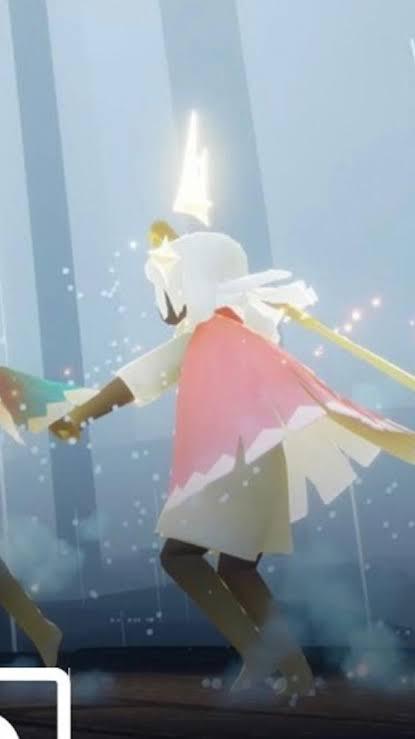
But that's if I can add that much lore in a season.
Otherwise I'll do a season where all of the most asked cosmetics will be free and good, otherwise niche, cosmetics will be behind a paywall.
Edit: Fixed spelling mistakes.
#sky cotl#sky children of the light#I WILL REVERT TGC GREEDY ASS COMPANY BEHAVIOR IN ONE SEASON JUST YOU WAIT
29 notes
·
View notes
Text
The Prodigal Son
Written for Baatar Jr. Appreciation Week Day 6: Revenge/Redemption
--
There was something familiar about the smell that filled his senses upon entering his childhood home - chestnut with a hint of cinnamon, perhaps. Either way, it was bound to give him deja vu. The inexplicable circumstance that his mother would be so gracious as to allow him the opportunity of serving out his sentence as a war criminal within the comfort of his own home and not behind bars, surrounded by the people he once called family, was too baffling to even bother wrapping his head around.
At least he had a bed. His ex-fiancé did not have such a luxury at the current moment. No sir - she was sitting cross-legged on the floor in a maximum security cell surrounded by twenty White Lotus newbies who, more often than not, wondered why they even bothered volunteering to join such an organization in the first place. The most boring job on the planet; yet, it was the most important. They were doing their part by keeping a supposed “deranged” and “complicated” woman locked away from the rest of the society that she scarred in the wake of establishing her glorious empire. Yes, it was this same empire that Baatar was guilty of helping build from the bottom-up that led him to his ultimate downfall. He was now the shame of the Beifong family and the entire Earth Kingdom. A perpetual disgrace. His own father couldn’t even look at him anymore, turning to the side once he caught sight of the prodigal son.
It pained Baatar to look him in the eyes too. “Father...” He tries to croak out before Baatar Sr. decides to put up a hand and walk off in the opposite direction. His siblings didn’t bother showing up to the foyer to greet their eldest brother and welcome him back into their lives either. After all, how could they trust him when he locked them up in cages like animals? All he ever wanted was their approval - to not be overlooked for once - and be acknowledged for something he’d done. He was never really the favorite child, just another tool in his father’s workspace. Ever since the twins were born, there’s never really been that much room in Suyin’s heart for him.
“You’ll have to stay in one of the guest rooms,” she tells him once they reached it, pulling out a pair of keys from her pocket and to unlock the handcuffs from his wrists. “Meals are the same times as usual - I’m sure you remember - and I want you in the dining room with us. We just want to keep an eye on you, that’s all. You’re family.” Yeah, family. A family member being treated like a prisoner. I guess I had it coming to me anyway. He contemplated the idea of bargaining his way out of house arrest, or possibly lowering his sentence. Sweet-talking Su sometimes did the trick. He’d have to get her on her good side first though, after she’s had a Chardonnay or four.
You’ll have to stay in one of the guest rooms. Is she serious? Was this what he had been reduced to - a guest? In the home he’s only ever known? To be degraded at such a level was a bit astonishing. One would think that she’d offer him his old bed as a truce - maybe even a bit of a consolation, especially after how Kuvira had betrayed him. Su seemed to be a bit skeptical of his behavior still. Anyone could see that. He could tell by the way she addressed him upon picking him up from the Republic City Police Station that morning before boarding an air blimp to Zaofu later on. After all those tears she shed in the warehouse in an attempt to win his heart back, he had now assumed, it was all for show.
“What do I have to do to gain your trust back?” Baatar says straightforwardly as he massages his wrists once the handcuffs were removed.
Su raised an eyebrow and replies rather nonchalantly, “That’s up to you to decide. You’re a grown man. You can figure it out for yourself,” before turning her heel and retreating to her study, leaving her son dumbfounded. He didn’t know the first thing about redemption. As a matter of fact, he never had to prove himself to anyone in his immediate family before. I could go and work for my father again....but even he doesn’t want to see me. I helped invent nuclear power. Why should I stoop down to his level?! Sucking up his pride was going to be blatantly difficult. Engineers like him - at least the ones he knew - were rather full of themselves than most would think. It was hard to overcome their faults, especially since they thought they were so right all the time. Raava knew their vice.
Maybe Father would accept me into this life again...a new start...for the both of us. As soon as he entered his room, he showered and changed his clothes, then headed over to Baatar Sr.’s lab, where he found the older man sitting at his desk tracing blueprints of maglevs. Clearly something was on his mind. He only did nonsense like this when he was feeling troubled on the inside, and frustrated in a way. Tracing blueprints from almost fifteen years ago...what a geezer. Had he no other outlets for his pain? I get that he’s upset at me but.....*sigh* whatever....
Approaching his father now, Baatar places a hand on his shoulder and says, “Dad, is there anything I can do to make it up to you?” Baatar Sr. looks up at him indifferently, trying to conjure up the exact words to say to his twenty-three year old son. Baatar Jr. waited for an answer - maybe a sign - that his father would at least have the capability to forgive.
Unfortunately, the answer he got was not what he was expecting. “I....I...I don’t know....” His father replies, stuttering, and still unable to make eye contact with him. A man of such genius and creativity, who was world-renowned for his style of architecture, couldn’t and didn’t know what to say for probably the second time in his life (the first being Suyin proposing to him). Had I really reached rock-bottom? Usually, Baatar would get commanded to grab a hammer and a wrench and some scrap metal to start putting a project together. Then again, Baatar Sr. was a different person now. He had created a mad scientist of sorts; and in such, he felt guilty of all charges. This was his legacy - an engineer and nuclear scientist turned war criminal. At this point, he wasn’t sure of any way he could recover from this life experience. It was all too much, and made him feel as if he was on the verge of a heart attack.
His son shook his head in shame. “Look,’ he began, “I don’t know if you’ll be able to fully forgive me for what I did, but I want you to know one thing....I always looked up to you Dad....even in times of times of doubt. Besides Varrick, you’re probably one of the smartest men I know. I never stopped thinking about you and Mother, and all of those things you both taught me growing up. Eventhough I felt like I was doing right by the world, joining Kuvira and creating a unified and equal Earth Empire, I still felt an obligation to question my moral actions - if I was doing the right thing or not by creating that weapon, and building that army. Through it all, I was still devoted to Kuvira because I loved her so much, but I still wasn’t entirely sure of myself, if this was what I truly wanted. I knew my actions would have consequences to go along with it, but if I could turn back time, I don’t think I would’ve gone down that path. I was just so frustrated of you turning down my designs and inventions all the time, saying that they weren’t needed. All I ever wanted was our love and approval - yours and mother’s. I truly do think things would’ve been different if that were the case.”
As soon as he said his piece, Baatar Sr. stood up from the comfort of his chair and embraced his son with open arms. Baatar couldn’t see it, but he felt a couple of wet tears fall onto his shoulder upon feeling his father’s touch. “I love you son. I was so angry and afraid of the man you’d become that I‘ve lost sight of the fact that you were still my blood. I never looked at you the same again once you left Zaofu, and I’m sorry that things had to be this way. I would love for you to come back and work with me again, like father and son. If you want to create something, do it. I’ll stand by you every step of the way,” he declares with water falling down his cheeks. Baatar hesitated to hug his father back, but felt soothed in his warm embrace. His father had never done anything like this before, as far as he was concerned, but it felt nice for a change, knowing that someone truly cared.
“I’ll work every day, seven days a week, just to prove myself to you. I promise. I don’t ever want there to be a rift between us again, Dad. I’ll be a better man from now on. I swear.”
#baatar#Baatar sr#baatarjrweek#baatar jr#baavira#suyin beifong#TLOK Fanfic#tlok#legend of korra#kuvira#the beifongs
14 notes
·
View notes
Text
Edelgard Working Together with TWSITD Makes Zero Sense
I wouldn't qualify people suffering because of their Crests under the Crest system of nobility as the same thing as suffering under the rule of the Church of Seiros. This is the very reason why I honestly believe that none of Edelgard's actions in terms of conspiring together with TWSITD make sense.
She suffered under the Crest system of nobility and was experimented upon by Those Who Slither in the Dark because the Crest system of nobility allowed cracks and gaps to manifest within Fodlan society where TWSITD were able to thrive, but she never came into contact with the Central Church which Rhea leads until she entered into the Officer's Academy.
For a majority of her life, Rhea and the Church of Seiros were non-entities that were not responsible for any of the tragedies that befell her, and while, through logical thought, one might be able to identify the Church's maintenance of its doctrines as the force responsible for keeping the Crest system alive as the status quo, which in turn created the cracks in society where TWSITD were able to thrive and gain influence from, that still does not mean that they were the parties directly responsible for the suffering that Edelgard has experienced. It thus seems strange for the Adrestian Princess to pin the Church as the party ultimately responsible for her suffering and come to the conclusion that she must first defeat the Church working together with TWSITD, or in other words, her oppressors before dispatching of her oppressors... somehow... later on.
Even if the actions of the Church were responsible for creating the butterfly effect that would eventually lead to her torture, her siblings' deaths, and the downfall of her father's dynasty, it's just strange that even when those who are directly responsible for these atrocities are staring her straight in the face, she still seems to believe that all of these are the ultimate responsibility of the Church, and not as the further result of an even longer-standing conflict caused by none other than those who seem to have no trouble hiding their millennia-old vendetta against the Church.
It is so incongruous for Edelgard to not see how it would be much easier and much more sensible to purge those who slither from the cracks of Fodlan society with the help of the Church and then fill in those cracks with reform so that they can no longer resurface when we know how meticulous and brilliant she is, and especially when we know that she is a mere few steps away from unlocking the truth that Thales and his dead-eyed cronies are pulling a fast one on her. We'll discuss more of that later.
We see over and over again over the course of the story without it ever being shown to us or told explicitly that TWSITD were pulling the strings behind all of the conspiratorial happenings in Fodlan through the underbelly of corruption that has festered over the course of centuries of the Crest system of nobility being in place. This system was created through the influence of the Church in order to establish order following the War of Heroes, but by and large, a lot of the suffering caused by the Crest system is not caused or meted out by the Church, but by those who hold positions of power within the system - people like the nobles of the Insurrection of the Seven who were seduced by the wiles of TWSITD who promised them greater power within the system through their strange means. When we consider this angle, we see that really, Edelgard's anger at the Crest system of nobility is justified, but that her anger at the Church is (and this is important) not wrong, but misguided. I'll explain why.
Rhea formally instituted the Crest system as a way to fill the power vacuum in Fodlan and prevent the continent from falling into chaos again following her victory against Nemesis and the Ten Elites, but remember that the system of ruling over the masses with the power of Crests was not created by Rhea, but by the Agarthans who used Nemesis as a tool to enact genocide upon the Nabateans.
Remember that it was the Agarthans who guided Nemesis and his band of bandits to pillage Sothis's body for the purpose of obtaining the Crest of Flames and the Sword of the Creator, which they then used to wipe out the Nabateans, drink their blood and take their bones, from which they obtained more Crests and Relics with which they could rule tyrannically over the people of Fodlan. With the end of the War of Heroes, Seiros had the opportunity to reveal the truth and abolish the Crest system of power that existed within Fodlan entirely, but she was not in a state of mind to do so, grief-stricken by the death of her mother and the genocide of her kin.
In a cruel, twisted kind of way, the blood running through the veins of her kin's killers and the weapons they fashioned out of the bones of the people that she loved were the only reminders of her family that existed. Therefore, I believe that her decision to instate the Crest system of nobility as the official system of governance in Adrestia through her influence as the head of the Church was motivated by her desire to preserve the vestiges of her kin's memory. To ensure that they don't simply fade into obscurity, and to be able to keep them close to her in a way - even if it is twisted.
I don't know what kind of manipulation Edelgard had to have gone through for her to come to the conclusion that the most effective way to topple TWSITD and their influence over Fodlan was to first eliminate the Church rather than work with them to topple TWSITD and then work with them to enact systemic changes to the way that Church and State interact within the continent to ensure that no one suffers under the dated Crest system (and also possibly go through dialogue to slowly bring to light Fodlan's true history - because obviously, none of that surfaces in the ending of Crimson Flower either).
Edelgard had part of the real history, but clearly, TWSITD cherry-picked the most convenient parts of that history to show Edelgard while obscuring the most inconvenient parts to her such that she would cultivate a vendetta against the Church as the perpetrator behind all suffering in Fodlan when TWSITD are the ones who are truly causing suffering by manipulating local nobles and satellite Church leaders to cause unrest and instability.
Does that justify Rhea's swift execution of heretics? No, of course not, but if Edelgard weren't already so set on her ways in the beginning of the game, she might have been able to gauge by Rhea's reaction to the appearance of the strange mages that she conspired with as the Flame Emperor in the Monastery that the Church was diametrically opposed to the very people that she was conspiring with in the first place for reasons incongruous with what Thales has led her to believe, and that maybe, her anger was misguided... and that she was taking a very, very roundabout way to achieving her goals that would not bear her the full truth of the matter... and maybe even that the Church would gladly help in the purge of TWSITD.
Not that that matters because she wrongly believes that she already has all the answers in her hands, which we know is untrue when we learn the whole truth from Rhea's own mouth in Verdant Wind. TWSITD played Edelgard like a fiddle. They had two main goals, 1) to destroy the Church to exact revenge on Seiros, and 2) to rule the world, and they were able to exploit Edelgard's anger and her ideals as a means to the first one.
This all makes even less sense when you consider that in order for all of this to have come to pass, Edelgard would have had to trust the words of her abusers fully and take their word for what the true history of Fodlan really is... What reason would she have to believe everything that TWSITD had to say about Fodlan's history is true when 1) they were the ones who experimented on her and implanted the Fire Emblem into her, 2) are not working with her in good faith, and 3) it is clear that they are also in the business of hiding even more information from her?
In fact, what reason would she even have to believe everything she said in her speech, particularly these two lines: "The leaders of the church have misused its creed to fulfill their true desire - to rule the world," and "They gathered gold and lived in extravagance," when it would have been plain to her from her months in the Monastery that 1) the Church is largely uninterested in interfering with Empire, Kingdom or Alliance politics except when heresy against the Church is directly involved or in preserving peace from petty bandits where nobles request their aid, 2) she would have seen how far removed from extravagance lifestyle at the Monastery was, and most importantly, 3) she came into contact and interacted with so many students and just... people in general who would have challenged and even shaken those beliefs?
Let's not even stray from point 1 in the previous question that I posed. As I've already said before, her suffering was never directly at the hands of the Central Church because as we see in the game, the Central Church has little influence over the Empire where the Western Church has more influence and because the Empire, unlike the Kingdom and the Alliance, has its very own Ministry of Religion. Even the game's narrative betrays any reason that Edelgard might have had to bear a grudge against the Church in particular and work with the very clearly evil group of shadowy figures because the game goes out of its way to remind us over and over again that the Church has had very little influence over the Empire's religious affairs in recent years - which has led to the rise of heresy within the Western Church, which, since Edelgard was working as the Flame Emperor, she should have known was also the handiwork of TWSITD.
She should have known from spending time in the Monastery that Rhea was less concerned about the loss of influence in the Empire preventing her from levying Church taxes on the Empire and more concerned about the actual heresy against their doctrines that they were committing. More damningly, she should have known that this concern of Rhea to protect the doctrine of the Church was not about maintaining the status quo of the Crest system because what the Western Church was preaching did not undermine the doctrine that Crests and Relics were Sothis's blessings and thus did not jeopardize the Crest system that revered Sothis as Goddess, but rather about maintaining her legitimacy as Archbishop of the Church such that Fodlan could have a unified faith among other reasons that she may have but is not forthright about, as she may have learned if she had taken the time to earn Rhea's trust and learn layers deeper into the truth.
As players, we do know that beyond maintaining her legitimacy as Archbishop, Rhea wanted the people to have a common faith in Sothis because she is still grieving the death of her mother, and that over the centuries, she has almost somehow deluded herself into believing the faith of her own making.
So then, was she fighting for religious freedom? No, because she didn't give a damn about the Western Church either, and because what the Western Church was teaching wasn't reflective of the true history that she apparently wants to bring to light... but never does in the end.
And now, the final nail in the coffin.
The people that Edelgard came into contact with in the Monastery. Let us talk about Marianne and Lysithea, yes?
Marianne bears the Crest of the Beast, and because of that, is visibly disturbed by any discussion of Crests. She has suffered much because of the Crest system and the prying eyes that look on at her and cast suspicion on her. While Edelgard and Marianne do not have supports, surely, she would have seen how Marianne would have reacted to the mere mention of a Crest, and yet all the same, she would have seen how she chooses to believe in the Goddess anyway, and how she did not begrudge the Church, even when it would be very easy to do so as the Church is, after all, responsible for teaching the doctrines that uphold the Crest system. Would this not have cast doubts on the beliefs that she held about the supposed injustice of the Church?
But I concede that Edelgard may not have been paying much attention to Marianne. They barely know each other, after all. It's a shame we don't have someone who experienced basically the exact same thing as her yet didn't begrudge the Church as the reason for her suff-
Wait a minute.
Lysithea von Ordelia. Here is a student that she knows was also experimented upon in the same manner as she was, and yet, she does not begrudge the Church in the same way that she does. Their support conversations are quite heavy, Edelgard trying to reach out to Lysithea as kindred spirits who know exactly how the other feels, and we learn that Lysithea does believe the Crest system and the obsession with the power of the Crests to have been responsible for her and her parents' suffering, but she doesn't speak a lick about the Church. Not to Edelgard, not to Claude, not to Byleth. Why? Because Lysithea has elected that the Church itself was not responsible for her suffering. Plain and simple. It would have been just as easy for Lysithea to also believe that because the Church was the entity responsible for putting the Crest system into place, that they are also ultimately the ones responsible for her suffering just as Edelgard believes... but she doesn't. Would this not have at least made Edelgard question her beliefs even just a bit? Seriously.
And to speak of commonfolk around the Monastery, what does she make of the orphans that the Church takes in? And all of the devotees that the Church extends its mercy and aid to? What did she make of the fact that following Remire, the Monastery took in its orphans and its survivors? Seriously.
What of the Almyran boy that Rhea treats equitably just like any Fodlani person that she holds audience for? What of Cyril? Does she see Rhea's kindness to the boy and how this boy is grateful for saving her from a life of indentured servitude and think that it is insincere?
Would any of these encounters with the people in the Monastery not have allowed her even a little leeway to question her alliance with TWSITD?
Don't you think that it would make more sense for Edelgard to also be mistrustful of TWSITD enough to want to learn more about the Church and the history that underlies them to verify the veracity of her cause before deciding who to confide her motivations in fully, acting as a double agent with the side that wins her over with the truth to win peace and carve out her destiny in her own terms, free from the shackles of those who would keep her in line for their own ends?
It just seems so asinine to me to see Edelgard playing right into TWSITD's hands and it frustrates me to no end seeing how IntSys made such a chump of Edelgard when she's such a good character. I will never let IntSys live this down. Edelgard working with TWSITD makes zero sense. Try as you might to change my mind as to why Edelgard siding with TWSITD and declaring war on the Church was necessary, but know that if you do, I have barely even scratched the surface and I will have an answer ready for you. It's sloppy writing on IntSys's part and Edelgard deserves better.
#fe3h#fe16#fe3h edelgard#edelgard deserves better#fe3h rhea#rhea also deserves better#why do the lords of fe3h have so many trust issues#this could have all been avoided if they had just sat down to talk#edelgard critical#edelgard discourse
51 notes
·
View notes
Text
RWBY Recaps: Volume 8 “Creation”
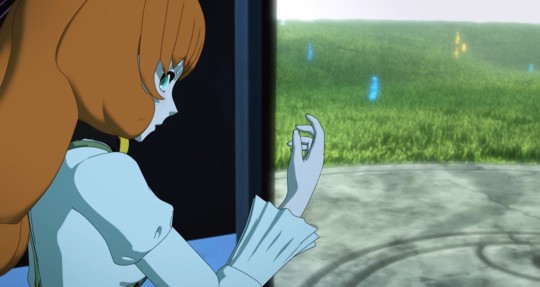
Happy Saturday, everyone! Oh man, oh man, oh man. I think I'll need to steer clear of the general RWBY tags this week, simply because I know the sort of responses I'll see to this episode. From smug celebration at Ironwood's downfall, to bad takes about what makes us human, this episode is a petri dish of sensitive material handled insensitively.
Let’s unpack it, shall we?
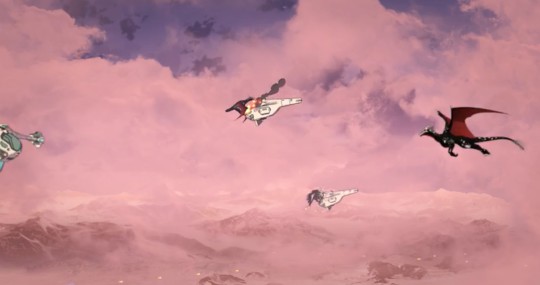
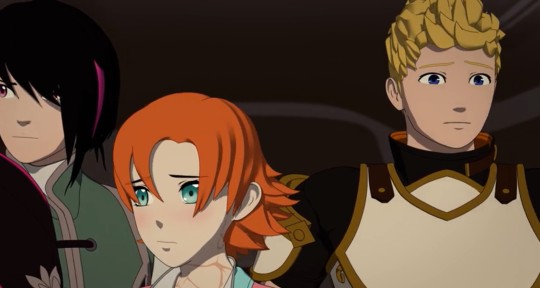
We open on an action that feels like a summery of the last three volumes: a grimm attacks an airship from the front, no doubt killing its pilot, while the other grimm conveniently ignore our heroes, no masking in sight. The group looks a little sad at the destruction around them, but ultimately ignore it because they have bigger, heroic things to do. I could write a whole, additional essay on how the huntsmen code — to protect the people — has been warped and abandoned by our protagonists in their effort to do what they think is right. It's a tale that might have been compelling if only RT knew they were writing it.
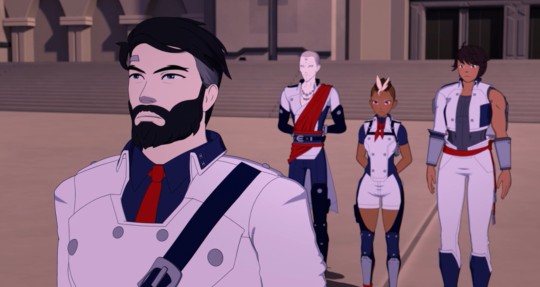
We get a shot of Atlas drones unloading the bomb before one is taken out, presumably by Qrow and Robyn. Segueing to Ironwood and the Ace Ops, they're waiting for Penny to arrive, the former carrying a massive gun presumably capable of capturing her. Despite the horror we saw on their faces last episode at the realization that Ironwood would kill Marrow for speaking up, it seems that now the Ace Ops are entirely in agreement with these measures. A week ago the implication was that they fell back in line out of fear, but now Harriet talks passionately about "putting down" the group if they were stupid enough to accompany Penny. "The General gave his terms." Vine sighs at this, but doesn't actively disagree. He's just "retracing the steps that led us here."
So, congratulations on introducing four new characters, not bothering to develop any of them, killing one off while ignoring Qrow's hand in that, and having the other three become all, "Yeah! Mass murder is a perfect solution!" off screen. Marrow is the only one with something resembling development and, as covered in these recaps, that's been pretty badly executed too.
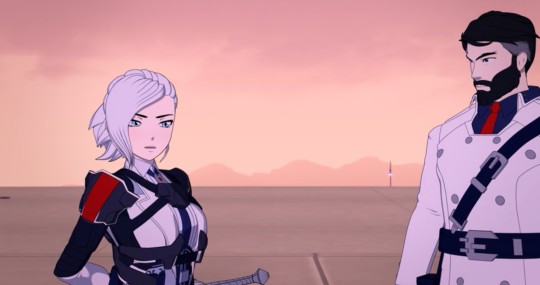
Ironwood sends them to deal with Robyn and Qrow after Winter reappears to "assist" him. That gets quotation marks because most viewers at this point have realized that she's who our two birbs spotted in the elevator. Winter isn't on Ironwood's side anymore, she's just skillfully clearing the field for the final attack. Indeed, we get a moment where she hesitantly brings up the bomb and Ironwood responds that he hopes she's not going to try and talk him out of it. No. Winter doesn't think that's possible. This was her final attempt at peace.
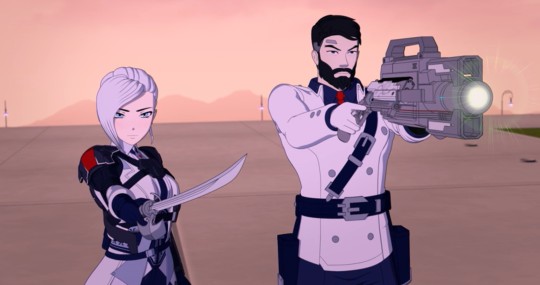
One of the reasons why I think I'll stick to my own blog for a while is because the fandom has a tendency to paint broad personality traits as evil when applied to some characters, yet simultaneously heroic when applied to others, when really it's about how that those traits are used. What I mean is, I've seen a lot of Ironwood critical posts that emphasize how stubborn he is. He thinks he's right and he won't back down. He wont listen to others. He's going through with this plan and if anyone tries to stop him? That's their mistake. Totally evil, right? Except, this is the exact same behavior Ruby displays, particularly in Volumes 6 and 7. She was stubborn about stealing from Argus and continuing the fight to the point where it endangered her and her teammates, to say nothing of the rest of the city. She refused to listen to Qrow, or Ironwood, or the Ace Ops, loudly announcing that she was right about, well, everything. If they didn't agree with her, the options were to leave the group entirely, or fight her. The actual difference here is that the writers have taken Ironwood to an extreme, one that's incredibly easy to understand as bad because it is bad: bombing Mantle has no defense. Ruby pulls the exact same nonsense, it's just not to that same extreme and her actions are followed by scenes that are meant to make us forgive her: a sad look because she didn't mean to get a city attacked by a leviathan grimm, a cry on the staircase because she didn't mean to risk the lives of an entire kingdom... even though she did. Ironwood is the bad guy because he's been written to take specific, OOC actions like shooting unarmed kids. He's not the bad guy because when other characters go, "Don't do this" his response is, "I have to." Because that's been Ruby's motto ever since she "had" to use the Lamp to rip Ozpin’s life story away. RWBY introduced those extreme actions of shooting the youngest in the group (for no reason) and threatening to bomb a city (for no reason) or shooting a councilman (for no reason) because when you remove those you've got a man who looks exactly like our hero. Ironwood's arc has been peppered with these confusing, unpersuasive actions because if you just keep the story as him stubbornly keeping to a plan he thinks will save the world, you're left with the reminder that all Ruby has done lately is stubbornly keep to plans she thinks will save the world. This moment with Winter just highlights how ill thought out Ironwood's descent has been because he does everything Ruby does... with a few, tacked on, “and randomly shoots people!” moments to ensure we understand that he’s definitely evil. No comparison to our heroes here, folks!
Ironwood is a bad guy now. That’s certain, but he was made that way so the story never had to grapple with the question of what that means for Ruby if we really start condemning things like lying, secrets, stubbornness, or endangering others for the greater good. Well then damn, if we strip away the hypocrisy then she might not be a good person after all. Or the people she’s simplistically labeled as bad might not be the devils Ruby claims they are.
But that’s a level of nuance RWBY would rather pretend doesn’t exist.
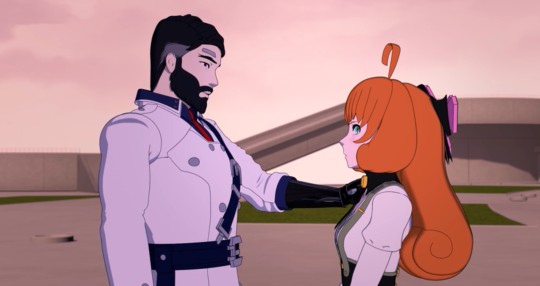
All of which is highlighted by Ironwood’s reaction to "Penny." He sighs and sags over the gun, immediately putting it aside. With his hand on her shoulder, Ironwood tells her she's "done the right thing." Precisely the same way Ruby would lower Crescent Rose and give someone a smile when they decided to fall in line with her.
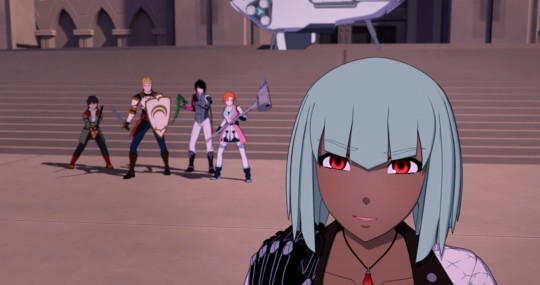
Which, of course, is the moment when Emerald reveals herself, dispelling the Penny illusion and revealing Team JNPR The Second behind her. She gives a quip about it feeling "weird" to do the right thing before disappearing.
From there the action picks up fast. I really enjoyed this battle simply from a choreography and energy standpoint. It gets the blood pumping, Ironwood's hand-to-hand is spectacular — especially that moment against Ren — and the group actually displays teamwork for the first time in what feels like forever, all of them needed to land a hit on Ironwood. As always, out of the context of the rest of the show it feels and looks great. My primary issue is that we get this fantastic fight against Ironwood. Not Salem, not Cinder, not Watts (like last volume when Ironwood was still a hero), not even Emerald as a means of transitioning from murderous villain to the group's best bud. No, what's arguably the best action sequence in the volume thus far goes to beating up the guy they betrayed from the start. There's no catharsis for me here, only frustration as we watch Ironwood stand in shock as Winter powers up Nora — who's fine now, I guess — and she slams her hammer into his face.
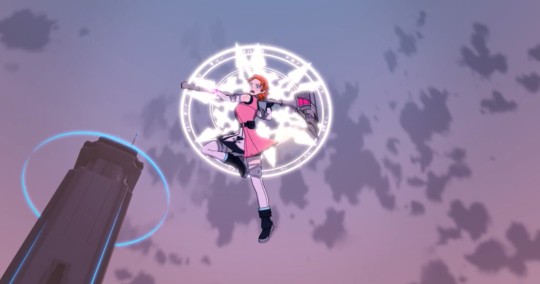
It never should have come to this and when a good character is done so dirty, their downfall doesn't evoke the emotions the writers are looking for. Watching Ironwood fall doesn't generate feelings of victory, or even tragedy at a course of events others were powerless to stop. It's just frustration at watching years worth of bad writing, sprinkled with fantastic ideas that never go anywhere.
Oscar gets a few hits in, Ironwood snatches his cane, and just as he's about to throw a punch, Winter arrives with the most dramatic sword slash I've ever seen.
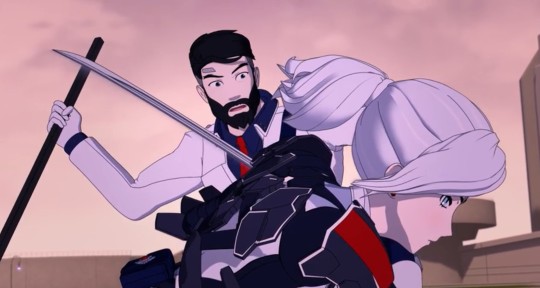

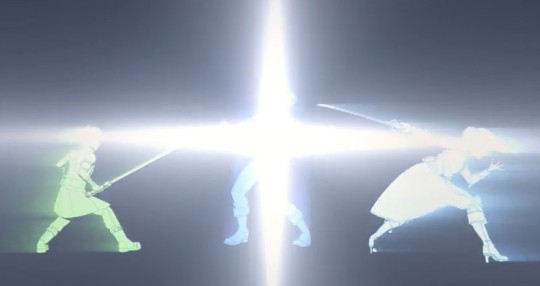
Ironwood's aura breaks and he falls, unconscious. We cut to an image of a droid's head separated from its body, one of Robyn's arrows through its skull. That doesn't have meaning or anything.

I suppose I should be grateful they didn't rip Ironwood's arm away during the fight, or outright kill him, though I'm still expecting him to die before the end of the volume.
Hmm. Wouldn't that be something? If after Salem's arrival, freezing cold, a Hound attack, grimm soup, a giant whale, a massive army, and a hack ending in self-destruction, the one character who actually dies is Ironwood.
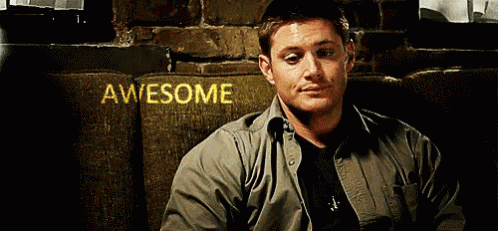
It's looking more and more likely.
Honestly, beyond all the obvious, what's so frustrating about this fight is that characters are only now using their impressive abilities to their fullest. Emerald creates an entire fantasy of what's happening and then straight up disappears, but she only does a half-assed version of that when fighting against Penny. (And really, she put more effort into helping the heroes she just joined over Cinder, the woman she's been obsessed with since the start?) Marrow refuses to use "Stay" against a group they wanted to peacefully arrest because that's just too horrible an act, I guess, but he'll do it on his own teammates the second Qrow and Robyn don’t want to fight.
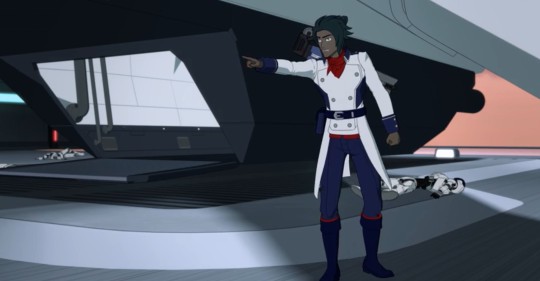
This is what I mean when I say the rules of the world bend to assist the protagonists in absurd ways. It's not nearly as egregious as Amity suddenly being up and running, but the fact that characters become substantially more powerful while fighting for the protagonists than they do against them is still a significant problem.
So Ironwood is down and out. As much as I hated watching that and didn't necessarily want more, am I the only one who felt like it was... a bit lackluster? I mean, the action was great, yes, but relatively short. There was no dialogue, such as another delve into the moral questions that led to this fight in the first place. There certainly wasn’t any hesitance against fighting a former ally. (Again, we’re meant to believe that the Ace Ops won because they just couldn’t bear to fight the group seriously, but every former ally here is capable of wailing on Ironwood without a single pause or pained look?) Ironwood just skillfully blocks for a while, is blindsided by Winter's betrayal, and then falls unconscious. Given that we learn he and Jacques will be evacuated after the rest of the kingdom, it's possible he'll escape somehow and we'll get a fight 2.0, but if not that feels like a rather tame end to the guy forced into the antagonist seat. Plus, what was the point of having Qrow frothing at the mouth to kill him this whole volume? I never wanted that to happen, I'm glad it hasn't, but I'm nevertheless left to ask why we bothered with that eleven episode side plot if we were going to erase it with one sentence from Robyn about Qrow being better than this. If that's all it took, let them work through Qrow's irrational anger while sitting around in a cell.
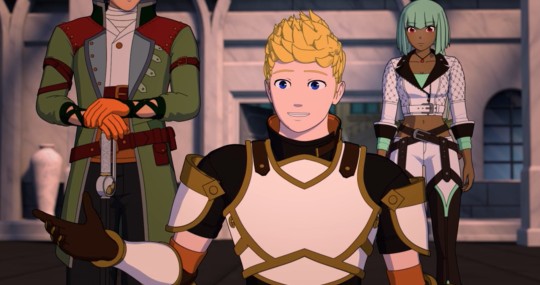
Winter tells the group to move onto "phase two" which is when we're treated to a flashback. We return to the ending of the last episode, with Ruby realizing that opening the vault is an option. Jaune, all smiles, goes, "We never considered using what's inside!"

This is what I mean about no consequences! This is what I mean about it all being a meaningless circle that ends with undeserved praise for the group! We started this horror show with Ironwood going, "We don't have a plan to protect the people, so I'm going to take what people we do have to safety" and the group going, "We don't have a plan either, but we're going to stop you implementing your plan because it's not perfect, risking a kingdom's worth of lives in the process." Now, the group has used two plans, one of which two characters knew about at the start and another they could have devised with the information they had. Oscar and Ozpin's, "We have an all powerful magical blast in our cane" and the group's "What if we used the Staff for something other than raising Atlas?" are both things that could have come up in the office debate. These were both always on the table! Instead, Ruby grew furious over the mere thought of cutting their losses, betrayed Ironwood again, attacked his people, denounced him to the world, and then two days later goes, "Oh wait! We could do something now that we could have easily done before if we hadn't made a needless enemy!"
Everyone realizes how much worse they made things, right? Turning against Ironwood, bringing everyone left in Mantle directly under Atlas, sitting around while an army was devoured, drawing it out until Penny was hacked... all of it would have been avoided if the group had thought and discussed things for a few minutes, not jumping straight to violently resisting what Ironwood came up with first. "We never considered..." Ruby says. Yeah, you didn't, except that's not something to smile about. The group made the situation a thousand times worse with their reaction when they could have just magically evacuated the kingdom from the start. “Maybe we could use it to save Penny and get everyone in Atlas and Mantle back to safety." Nothing has changed! They had this ability the whole time! Nothing about the last twelve episodes led them here, they just randomly thought of it after RT had padded the volume with needless drama. Considering that they're heading to Vacuo now, we could have just made this the finale of Volume 7 instead: big fight with Ironwood, revelation, get everyone evacuated while Salem attacks, leave her behind, then Volume 8 begins in Vacuo with the group knowing Salem is out there looking for them. This entire volume has been pointless. What did they accomplish?
Oscar got kidnapped and beat up, Nora was scarred, Ruby and Yang realized horrible things about Summer, and the whole world is panicking about a witch. Good things are... Ren and Ruby unlocked some semblance stuff? Weiss loves her brother again after he proved himself useful to her? Great work, team.
So this one moment makes everything they've done up to this point useless and, of course, once thought up the plan goes off without a hitch. Note that the summary of this episode says, "It's risky, dangerous, and nearly impossible — but it's the only plan they've got." Nearly impossible? That's a whole lot of talk for a plan that was implemented perfectly.
There is, admittedly, one snag, but one that is likewise made meaningless just seconds later. We'll get to that.
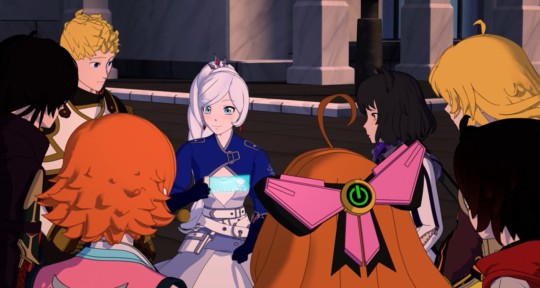
We see Winter call Weiss who also smiles at hearing from her sister. Obviously interactions like the group's with Emerald are the bigger concern, but it's still an issue that no one reacts as they should to people reappearing in their lives. Rather, RWBY continually confuses audience knowledge with character knowledge. We know Winter is on their side now, but Weiss hasn't a clue. Last she saw, she and Winter were agreeing to head down different paths. She has no reason to think her sister isn't loyal to Ironwood, so why isn't the group treating this call with suspicion? What if it's Ironwood trying to mess with them through a presumably safe party? I swear to god, with any consistency in the story this group would be dead ten times over because their decisions are so stupid. Oscar decides to believe in the guy currently beating him to a pulp, the group decides to trust a villain over a flawed ally, and now they see Ironwood’s second calling and are like, “Great, big sister Winter is checking in!” There’s a difference between a hopeful story filled with second chances and characters whose reliance on the narrative bending to assist them makes them come across as insanely naive.
None of which even touches on characters forgetting that other characters are presumably dead. Ironwood shot Oscar off the edge of Atlas, but doesn't react to learning he was kidnapped, or when he shows up to the fight. Thanks to Marrow's comment, Winter thinks YJOR have perished in the whale, but also has no reaction to them appearing to help with this plan. Absolutely nothing is followed up on.
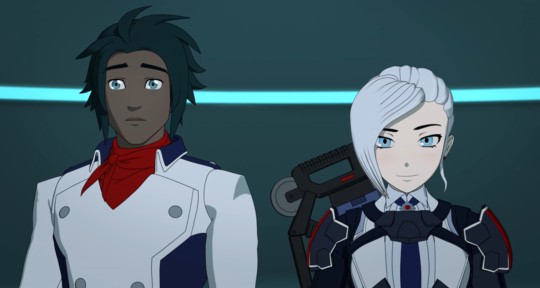
We then get a flashback within the flashback (fun) of Winter — shock — not arresting Marrow. It's precisely as I assumed, with Marrow angrily asking why she hit him and Winter responding with, “Because you were about to get killed if I didn’t do something!” As I said last recap, I feel like I should let the marginalized groups lead this discussion, but I do want to add that no matter how well intentioned — or strategic, as I mentioned last time — the imagery itself is still harmful. No matter the context, we were still left with white woman Winter putting her knee on black man Marrow's back to arrest him, and it’s an image that everyone in the U.S. should be familiar with the horror of. Far more of a problem than the (presumed) ignorance of this scene is, I think, the choice to make Winter entirely unrepentant. I think some of this discomfort could have been alleviated if RT had written Winter as apologetic, contrite that it came to that and asking Marrow to understand that she only did it as a means of assisting him. Asking his forgiveness. Instead, we get this
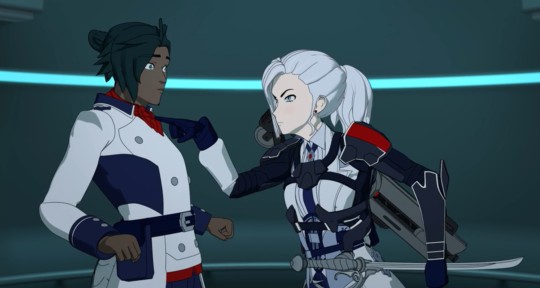
So what, the only emotion we have room for is gratitude that Winter beat him up? Yikes.
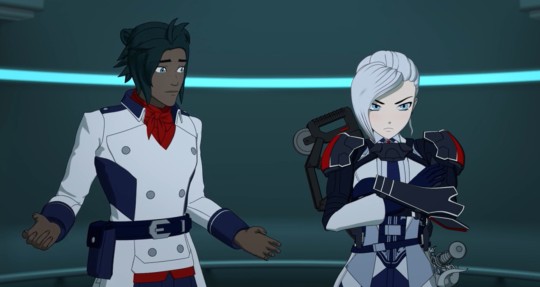
As a lighter side note, I find the animation here unintentionally hilarious. Winter's assistive device makes her shoulders look too high, making this gesture more, "Woman exaggeratedly pouts about not getting ice cream for dinner" and less, "Woman sternly closes off during a disagreement about saving lives and betraying their general." Gotta find our humor where we can, right?
What's intentional, but far less funny, is the needless animation to show us that, yes, Marrow is peering at Winter calling Weiss. Oh, the shenanigans.
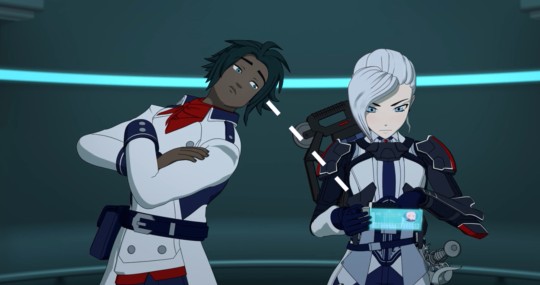

The elevator opens where Qrow and Robyn spot them. "Speaking of help," Winter says, as if she has any reason to believe Qrow didn't kill Clover. He and Robyn lower their weapons a bit, as if they have any reason to believe Winter and Marrow aren't still loyal to Ironwood. Would it really be so hard to have Winter immediately throw up her hands in the face of their almost-attack, blurting that she's not their enemy and needs their help, please listen? Again, RWBY can't remember which characters know what, let alone what their motivations and reactions should be.
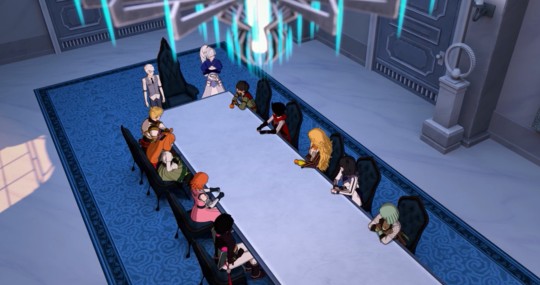
We then enter the third part of the flashback where everyone piles into the Schnee dining room and discusses doing the things they could have done from the start. I'm metaphorically banging my head against that table. In RWBY's favor though, we also get a long shot of Jaune continuing to boost Penny’s aura.
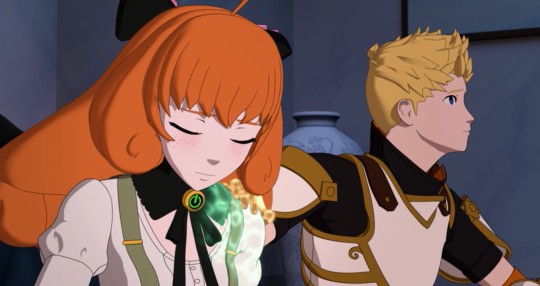
Though it's only one of many issues, just the other day I asked, "Hey, why has Jaune always needed to hold onto the person he's assisting, but now suddenly he can touch Penny once and the boost remains?" It still doesn't explain why he was letting go before/why him needing to boost her continuously didn't put a hard time limit on their plan — not that Mantle's hour limit meant a thing — but at least they're showing more of that here.
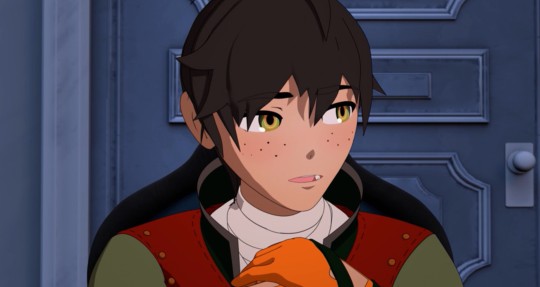
Oscar notes that Atlas has enough gravity dust that it won't fall immediately when they use the Relic, but they will have to move fast to ensure no one is underneath. Yeah, like all the civilians you put there. He also cautions that the Staff isn't a "magic wand" that they can just wave to make all their problems go away... even though that's precisely what they're going to do. Ozpin gets some lines that aren't apologies or followed by attacks — hallelujah! — about how the Staff's spirit is a "character" and requires that you be able to precisely explain anything you want him to make. Blueprints, examples, a firm knowledge of how this will be accomplished — all of it is required to actually get what you're after. That's a cool limitation. It's just too bad we didn't know about it episodes ago, forcing our heroes to find ways to meet those requirements. Instead, they already have everything ready to go the moment they learn about it: Penny has her own schematics and Whitley apparently has knowledge of the entire kingdom after sending some ships out. Normally I'd go, "Really?" but I'm still just struck by how much good he's done compared to everyone else in this room. Your show is seriously broken when the side character the writers didn't even want the audience to like until a few episodes ago is more active, mature, and sensible than the heroes.
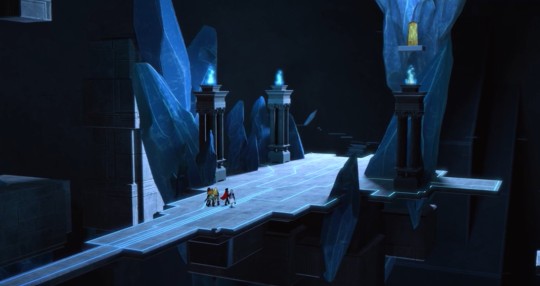
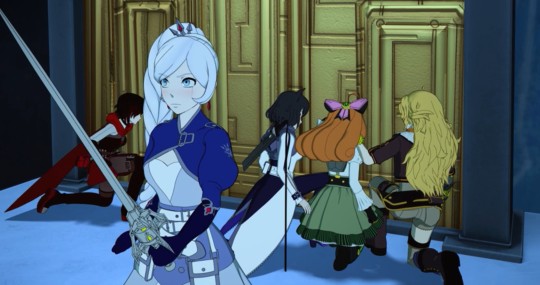
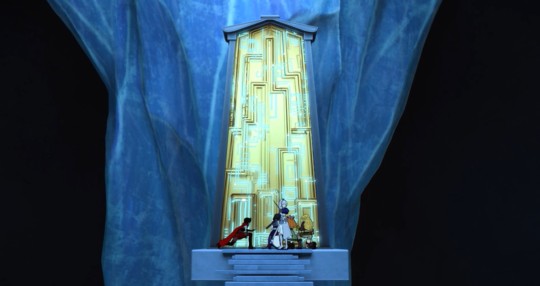
From there we see the group implementing the plan. They fly up through the hole Oscar left, straight to the vault. Penny opens it without any trouble and Ruby uses her speed to grab the Relic and stop time, halting her self-termination. I do like that combination of skill and their knowledge of how this magic works. That felt like a smart move. What's interesting though is that the Relic appears to stop time in the entire kingdom. We see people in Mantle and Atlas slowing to a halt too. I assume no one remembers that happening after time restarts, otherwise people would be freaked out by suddenly being frozen in place.
Wouldn't that have been cool though? The group often takes a while to use the Relics, either deciding what they need, or watching Jinn's information, so what if you had a population that blinks and suddenly, from their perspective, half an hour has passed? How long might Ozpin have sat on his knees after Jinn told him he wasn't able to defeat Salem? How long was that space frozen? We could have had a world built around rumors and fairy tales. Not the random stories Ozpin brings up to make a point and that we never hear about again, but tiny details that foreshadow these revelations. A Beacon where the kids tell each other spooky stories of people suddenly losing time, once a whole day. The wives, sisters, daughters, and nieces who disappear, or wake up one day with horrifying, unnatural powers. We see magic influence the world around it, but we've seen very little of the world reacting to that influence. The one time I can think of is Blake reading a book about "a man with two souls," the fiction clearly inspired by knowledge of Ozpin. And indeed, it felt great to recognize that as a significant detail and then be proven right years later as the lore was revealed. We could have gotten so much more of that if RWBY was better planned out.
I'm getting off track though. As time stops we see a series of images: Ironwood being led to a cell with Jacques, Penny succumbing to her hack, Team JNPR The Second preparing to contact the kingdom about what's going on. Then everyone is distracted by the giant, blue, buff Ambrosius who comes out of the Staff.
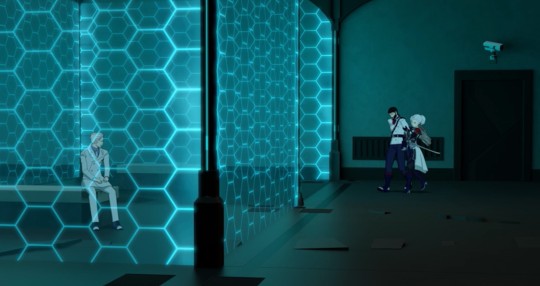
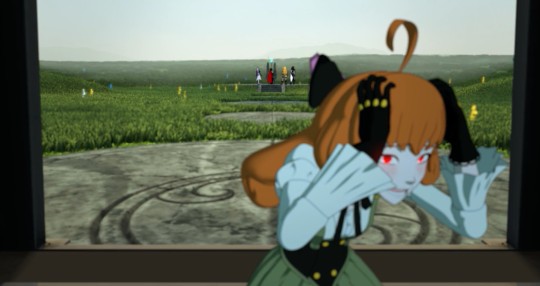
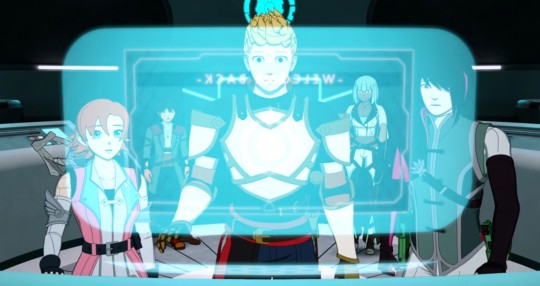
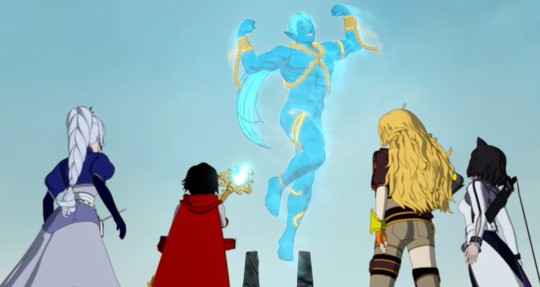
...there's a lot of innuendo in that last statement lol. At least RWBY is committed to the crazy design they chose? I was never particularly comfortable with the image of characters gaping up at a giant, naked woman in chains, so it's nice to balance that a bit with an equally giant, naked dude in chains.
From here things get confusing. In all honesty, I'm not sure if this is another moment where RWBY is trying to pass off a retcon as the group being brilliant, or if I, as an individual, simply didn't follow the logic. I won't bother to rehash the slow, meandering way that Ruby reveals their plan — that certainly didn't help with the clarity. Not in an episode where we didn’t even know these rules ahead of time — but it boils down to this:
The moment they have Ambrosius create something new Atlas will start to fall. Two of his creations can't exist at the same time.
He needs clear instructions about what he's making in order to create it.
The group has brought him Penny's schematics so that he understands how she's built.
They want, specifically, "a new version of her... using her exact robot parts."
They can't just create an exact duplicate of Penny because that would carry the virus with it.
They can't create an exact duplicate without the virus because that Penny would cease to exist as soon as they used Ambrosius to make an evacuation plan instead.
So they essentially want Ambrosius to create a new Penny by removing all the robot parts from the Penny that currently exists, carrying the virus with them, and leaving only the human parts of Penny behind: her aura/soul. Then, the purely robot version is destroyed when Ambrosius creates something new.
Except... this new Penny, this human Penny, still needed a human body. That's what Ambrosius created and that's the snag I don't understand. They want a version of Penny that's just her aura, just her soul, but that soul still needs something to be housed in. Ambrosius himself notes that. At first I thought the group would just have some wisp-like version of Penny they'd have to find a new body for — perhaps leading to a new one for Ozpin too — but she's just... given a human body when he takes the technology away, something she absolutely didn't have before. That is Ambrosius' creation. That is what should have disappeared along with the removed parts of Penny, leaving only her soul — what Ambrosius didn't touch — behind. Instead, the plot oh so conveniently has Penny get a new body for free and it's untouched as they move onto the next task.
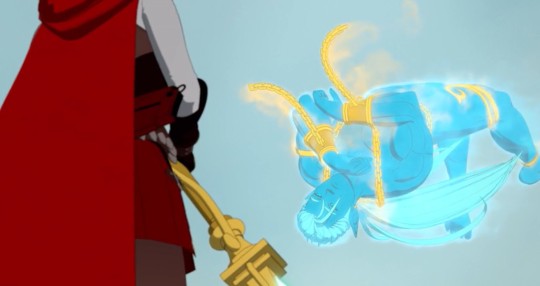
Ruby drops a casual line about Ambrosius not being able to kill, or destroy, or something, which I think is meant to be the justification here. The rule (which, again, we JUST learned) about not killing anyone supersedes the rule of two creations not allowed to exist, allowing Penny to stick around. But even if that’s true, it’s a load of bull. What, does the magic think no one in an entire city might die if the floating mechanism is removed and it plummets to the ground? Ambrosius didn’t say, “Sorry, can’t stop floating Atlas because thousands of people are still here and they’ll die if I create something new,” but we’re supposed to believe the group skated by on, “Sorry, can’t destroy the last creation like everything else because there’s a single person still using that body and she’ll die if I create something new”?
Seriously, did I miss something? Or is this another, "Amity is ready because the group needs it" situation? The rule of creations ceasing to exist is bent because the group needs to have their friend around. Ambrosius is certainly enthusiastically complimentary, saying how "smart" the group is and that they've "done their homework," but I'm not so sure. It feels like a moment where the show is (once again) insistent that the group is far more talented and brilliant than their actions actually imply. It's only the rules of the world twisting and turning that allows for their success. To say nothing of how the episode dropped all these rules on the viewer in a ten minute info dump, ensuring we didn’t have any time to think about them before the deed was done.
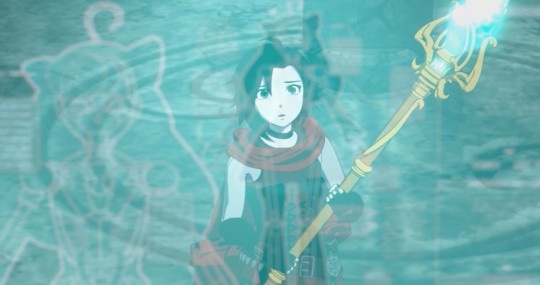
It doesn't add up for me and honestly, even putting that aside? I hate this. I absolutely despise it. Look, if it turns out this really does make sense then props to the group for coming up with that plan. Our snag aside, the rest is a legitimately well thought out wish. I don't have a problem with the execution so much as the message. I've been saying since Volume 7 that RWBY has done Penny a disservice in terms of her "real girl" narrative. Whereas before we had a firm message that you don't need "squishy guts" to be human, to be real, Volume 8 continued to carry us further and further into the idea that it is necessary. That Penny's body is entirely inhuman, something to hate, but at least her soul is human and good. That's what the virus arc taught us: your terrible, technological body might be betraying you, but hold onto the parts of you that are really human. I hated that too, but I never thought RWBY would go this far. They made Penny fully human and went, “THIS is the version that always should have existed.”
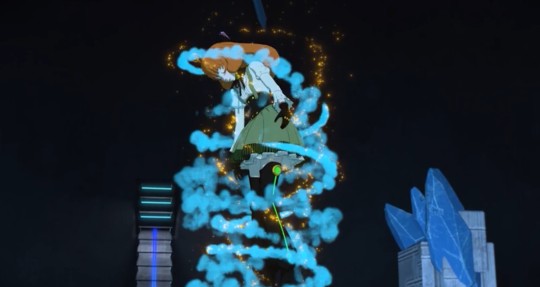
And this isn't just me reading into the implications. It's right there in the text. Blake says that they're looking for “Penny, the girl who’s always been there underneath." Meaning, underneath the metal. The girl exists trapped in the robot body. Yang holds up her arm and says that the metal is only "extra," it's not really who you are.
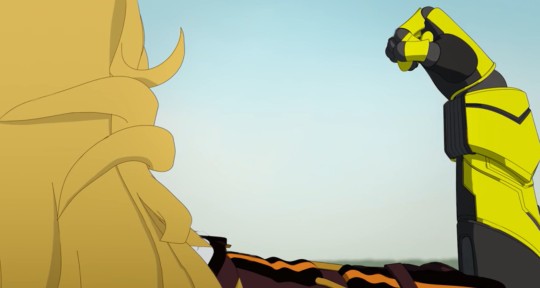
That gets into two perspectives on disability that RWBY just doesn't have the nuance for: what's an integral and celebratory part of one person's existence can be seen as something separate and discomforting to another. Though there are many people with disabilities who would happily cure themselves with a magic Staff if given the chance, there are just as many who say no, this is a part of my identity. I don't want to change, I just want the world to accommodate my existence. However, RWBY takes a hard stance here, saying that any metal in your body is intrinsically bad. We didn’t use to have this take, but now the show has embraced it. Blake says the real Penny is trapped in there. Yang's words implies that she'd get rid of this "extra" bit of her if possible. Mercury with his metal legs is the enemy. Ironwood with half his metal body is the enemy. Whereas once difference was truly accepted, now it's shunned and fixed whenever possible. Those who can't be fixed, like Yang, must simply deal with the lot they've been dealt, reassuring themselves that the metal isn't really them. But Penny? Penny they can fix.
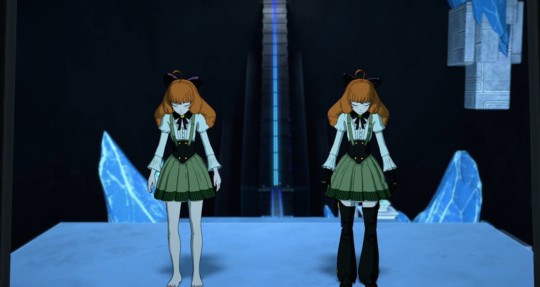
So they do and the very first thing Penny does is hug Ruby, exclaiming, “Do hugs always make you feel this warm inside? Wow. More!” and proceeds to hug all the others.
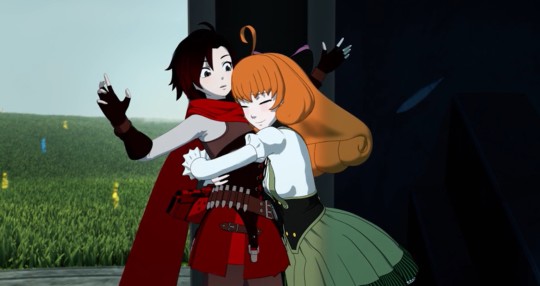
What's the underlying message there? Penny didn't understand hugs before this moment. She never experienced the "warmth" of them while an android, despite the fact that here warmth is entirely metaphorical and has nothing to do with a literally cold body. RWBY really went and said that the "real girl” android was never actually real at all — not as real as she could be — because it's only when she's given "squishy guts" that she understands the true happiness of a hug.
Wow.
I mean seriously, wow.
Never-mind that, you know, we've seen that happiness and warmth since she was first introduced.

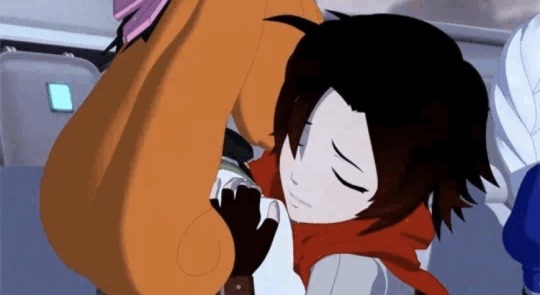
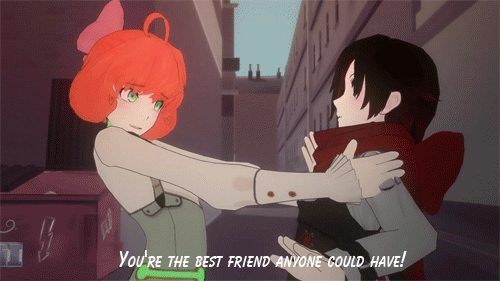
RWBY is really rewriting all the core themes introduced in Volumes 1-3 and it sucks. The show is absolutely the worse for it.
To say nothing of all the other disservices to Penny's character here. There's all this buildup about whether she'll still be the same Penny once the wish is complete, but of course she is. We wouldn't want to have Penny struggle when she becomes something other than what she's always been, would we? After all, it took Yang an entire volume to work through the shock of a metal arm, but taking away a metal body for a human one is in no way traumatic. Having a normal, human body is intrinsically a good thing! Of course Penny accepts it with nothing but smiles. Becoming human is celebratory, but becoming more machine is a horror.
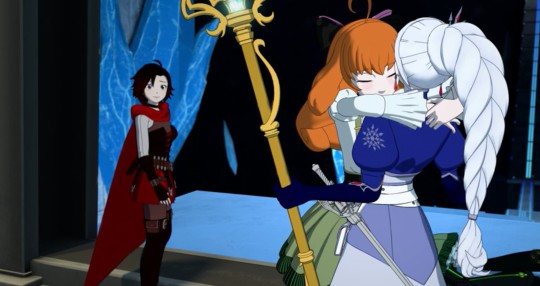
She gets to watch her body self-destruct, glitching out and collapsing in front of her. But again, nothing to unpack there that can't be covered with a hand over her mouth.
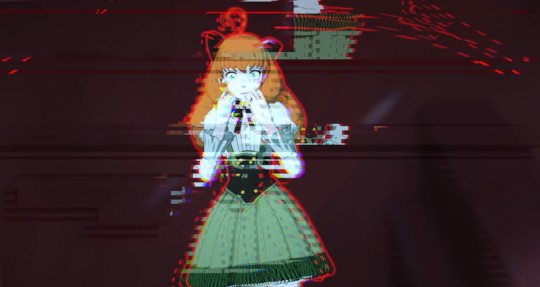
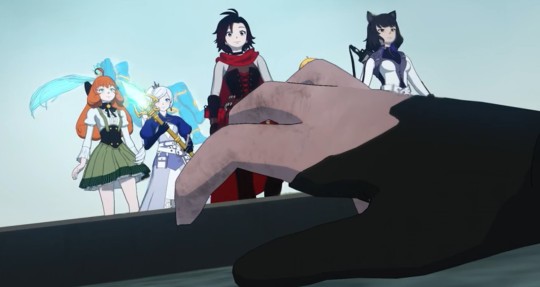
There's no discussion of whether Penny still has the Maiden powers, or whether a wish like that would mess with the transfer in any way. How did the group know this action wouldn't register as a clear-cut death, forcing the power out of her and into someone new? Obviously they couldn’t know, but no one even thought to bring it up?
And the entire time they're formulating their evacuation plan, there's no talk of whether these portals will appear before everyone currently alive in the kingdom. I mean, if they do then Ironwood and Jacques can just waltz through and escape into Vacuo. If they don’t, then Maria and Pietro don't necessarily have a way out. We still don't know if they're stuck floating in Amity, or if Amity crashed, or if they made their way back to Mantle or Atlas. More importantly, the characters don't know. I have no problem with RWBY keeping that a surprise until the finale, but I absolutely take issue with Pietro's daughter walking through a portal, seemingly not to care whether her father is going to make it out too.
It's been the same with Qrow and his nieces' relationships. The show is good at insisting that these families love each other because they hug and smile while on screen together, but when shit is actually going down, none of them care about pesky things like disappearances, arrests, or “The last time I saw you, you were with an old woman on a damaged station after a villain attack, potentially stranded in deadly cold if life support failed.”
So yeah, this entire arc with Penny has been a disaster. From throwing away her framing subplot, to giving her a virus that did absolutely nothing, to giving her the Maiden powers which she's also done nothing with, to erasing her android status for a “She's really human now” message, Penny has been done dirty by the show these last two volumes. Not nearly to the extent Ironwood has, but still. At this point I wish they'd just kept her dead dead. Why do I want her back when that resurrection produces no reaction, her conflicts lead nowhere, and one of the core things that made Penny Penny has now been magically erased?
I've been saying for weeks that killing Penny off and keeping Penny around each had serious downsides attached, yet I never expected RWBY to do BOTH.
Also, I'm warding off any, "But Pinocchio was made into a real boy too" defenses. RWBY is not Pinocchio. Penny is not Pinocchio. I thought the allusion was going to be the Pinocchio inspired girl heading into the whale, not the show forcing the exact plotline — down to a blue, magical creature — onto a character whose entire journey has been about accepting herself as an android. Congratulations, RT. You just obliterated years of work.
Again, if you'd like an example of how to do this far better:
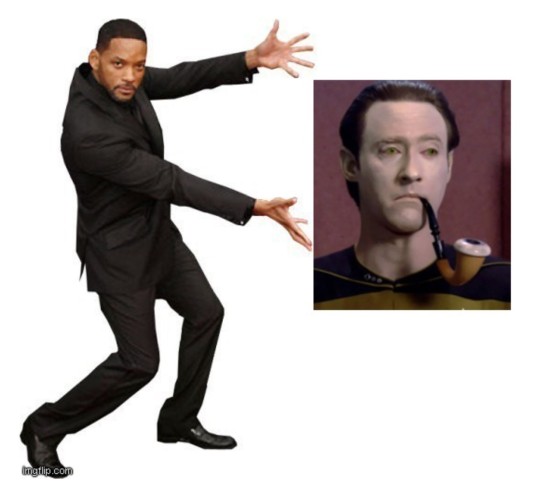
As Penny's character falls apart, Atlas shakes, alerting Jaune and the other that a new wish has been granted. Jaune pecks at the screen and realizes "That did, uh, something…?” but doesn’t realize that there's a giant, red "LIVE" up in the corner.
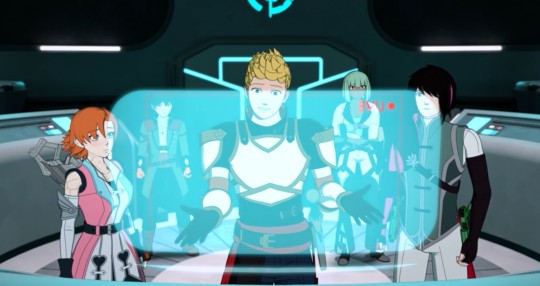
Jaune tries to warn the entire kingdom about their plan, but what he actually says is
“Atlas is falling, but — !”
And then the communications cut out.
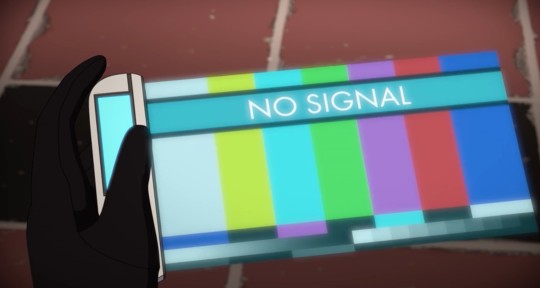
Watts, perhaps?
Our heroes are really good at saying things that make large populaces panic, huh? This is the one (1) snag in their "impossible" plan, but as said above, it doesn't amount to anything. We get a shot of Nora, horrified at the thought of kingdom-wide communications being down, but literally seconds later Team RWBY has made portals appear that everyone can walk through. So... why do we care about communications? More importantly, why does the show try to make us care? So much time is spent getting the viewer invested in problems that never come to mean anything.
Including the problem of Salem herself.
Because the group successfully creates that evacuation plan. This is it. Everyone is leaving while Salem still reforms.
Yang asks if they can use the vaults themselves as a single point for everyone to go to and Ambrosius agrees. So everyone is going to pile into the Vacuo vault that can only be opened by an unknown Maiden? They're going to put an entire kingdom's worth of people, including their enemies, into the vault where the Relic of Destruction is? Yeah, that's great. Prior to this — like if this had been the plan at the end of Volume 7 — I would have 100% agreed that these risks are better than death by Salem/grimm/cold. Now though, Oscar as axed Salem for an unknown length of time, the cold is having no impact on the civilians outside, and the grimm only attack background military personnel that supposedly no one cares about. They couldn't have spent another few minutes (especially with time stopped!) to figure out a means of getting to Vacuo that doesn't involve revealing and providing access to the location of a super secret vault? To say nothing of what they're going to do if Salem wakes up and snags one of those portals for herself. Two kingdoms for the price of one!
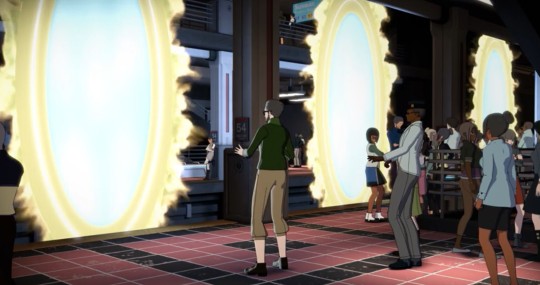
But that's what they're going with. Weiss gives Ambrosius a schematic of the kingdom, I guess, and he makes branching pathways appear with numerous portals for everyone to step through. They'll enter through one and, when they exit another, will be in Vacuo. Easy peasy, right? Especially since Ambrosius doesn't seem to have any limitations about how often his power is used. Is it three creations every 100 years like Jinn? We're not told, at least not to my recollection. However, I was expecting there to be a waiting period, that they'd fix Penny, go to evacuate the kingdom, and learn that sorry, I can't make another creation just yet. It feels like the sort of shit move these beings would pull — "Don't cry to me when it's not what you wanted" — it would have been another commentary on the group's insistence on putting friends over the people's safety (like demanding the Ace Ops not bomb the whale because of Oscar), and crucially, would have kept the action in Atlas. Isn't that what this volume is? The battle for and potential destruction of the Kingdom of Atlas? We have two episodes left and, unless something unexpected happens, we're moving that action to Vacuo. Why?
Meanwhile, Penny's corpse is just chilling in the background 😬
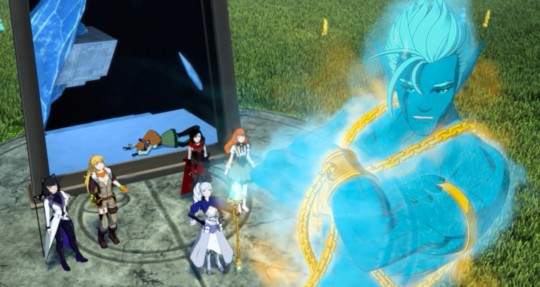
While all this is going on, Winter reassures Jacques that he and Ironwood will be evacuated too, though she makes it clear saving him was Weiss' idea. It checks out, considering Weiss is the one who turned her father's arrest into a joke last volume. Winter still takes his abuse seriously.
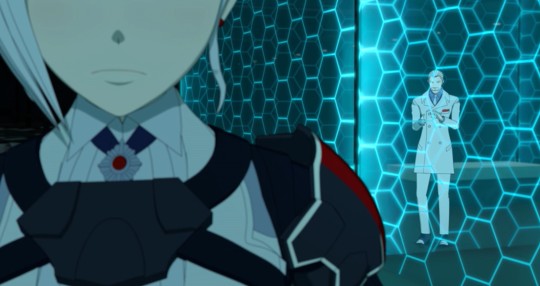
The group prepares to leave with a celebratory, "We did it!" from Weiss. I'm still banging my head against that dining room table. Before they can pass through the portal though, Ambrosius leaves them with one, dire warning: "Do not fall."
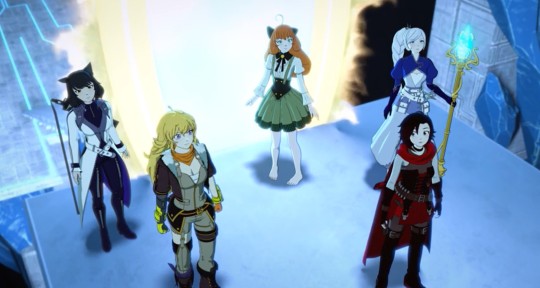
In any other story a line like that is a neon sign announcing to the audience that someone will absolutely fall, and maybe they will, but RWBY has dodged consequences so often I wouldn't be surprised if this was merely another way to string us along. Remember all the hype surrounding Salem? The cold combined with her army and magic? How she was going to decimate Atlas and leave our group broken in a Fall 2.0?

I mean, we still have two episodes left. Forty minutes of content. Salem might still decimate them, especially since something has to happen in the finale. But god, it's a problem that we've come this far without a payoff. Salem randomly decided not to attack anyone, was stopped by a weapon added in solely for this purpose, and now the whole kingdom is being evacuated with a plan the group could have used at the start. This volume really is meaningless.
“We go to vacuo and hope we’ve thought of everything” they say as the camera zooms in on Cinder's smiling face. For the second week in a row.

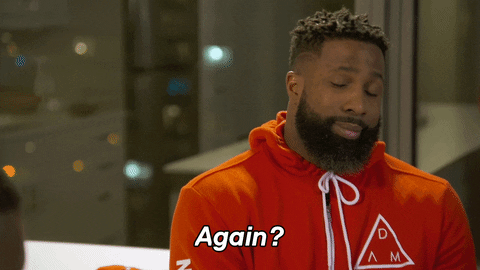
Bingo time!
Winter betrayed Ironwood, the group used the Staff of Creation, and I'm axing Maria on behalf of Pietro. You can't have the guy's daughter become human — after he was killing himself to give her his aura?? — and magically walk to Vacuo, not knowing if he's even survived since she last saw him, and expect me to think he hasn't been forgotten. Same with Maria. Has the group mentioned her since Amity cut out, notably for reasons they couldn’t explain? Of course not. Did they care to find out what happened? Of course not. I have no doubt they'll both re-appear in the next two episodes, Pietro crying over how perfect his girl is now and Maria congratulating the group on their actions, but we're still marking it.
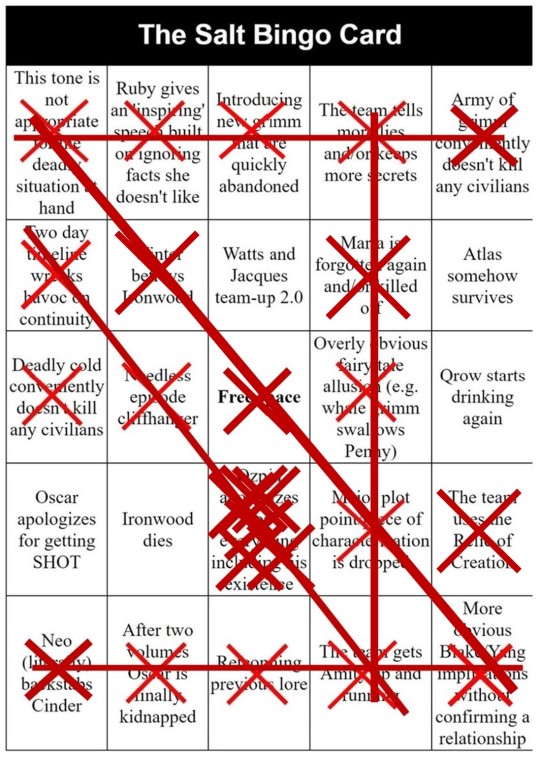
This is the ugliest thing I’ve ever created, I hope you all are enjoying it :D
Another week, another couple feet added to the hole we’re digging. I know I keep saying I have no idea what's going to happen next... but I have no idea what's going to happen next. A Vacuo ending was not in the cards, not outside of them miraculously showing up in ships. Maybe they have been on their way to Atlas (somehow...) and will arrive precisely when everyone has left! Anything is possible at this point.
See you next Saturday, everyone. Hold on until then lol. 💜
93 notes
·
View notes
Photo
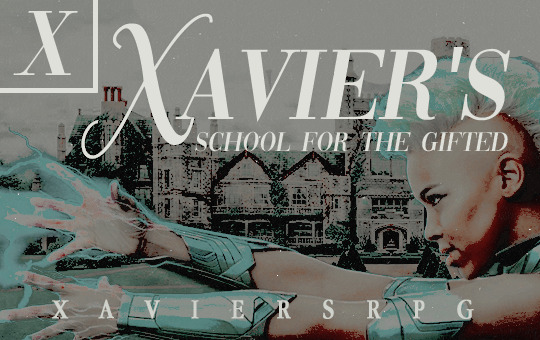
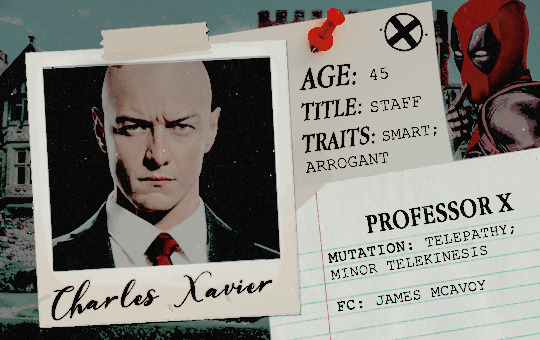
CHARLES XAVIER is the mutant son of wealthy physicist, Doctor Brian Xavier, and his wife, Sharon Xavier-Marko. His identical brother, Philip, was sent away to a boarding school in the United Kingdom shortly after Charles' mutant abilities emerged, leaving only Charles and his step-brother, Cain, as youngsters in the mansion. Dr. Marko favored his gentle, smart step-son to his own son, which led to Cain bullying the young Charles. Charles would later meet Raven Darkholme when she snuck into his home and, ecstatic to meet someone else like him, he quickly invited her to live with him and his family, which she accepted.
After the death of Charles' mother and step-father and the subsequent departure of Cain from the mansion, Charles began studying at Harvard, later graduating with honours. After finding out that his brother had a daughter, Charles decided to continue his studies at Oxford University and reached out to Philip only to receive nothing in return. It was shortly after completing his thesis on genetic mutation that he would meet CIA Agent Moira MacTaggert, a meeting which would spiral into the creation of Xavier’s School for the Gifted’s First Class. Erik Lehnsherr and Charles Xavier would bond closely during this time, and so would Moira and Charles as a romantic spark blossomed between them. Moira and these young mutants were instrumental in the Cuban Missile Crisis, an event which rendered Charles unable to walk... and at the end of it all, after sharing a kiss, Charles wiped Moira’s memories of him and what went down in Cuba entirely.
Her knowledge of his home and the mutants within endangered not only himself but the others, too. In 1965, Professor Xavier officially opened the Xavier School for Gifted Youngsters. During that year, however, America assumed a direct military role in the Vietnam War. As the war escalated throughout the mid-late 1960s, many students and staff at the school were drafted into the military, and ultimately, the school was unable to function. By the early 1970s, Xavier's school was defunct, and he reverted his mansion to a private residence once again. His estate had also fallen into considerable neglect and disrepair, and so had he.
By the late 1960s and early 1970s, Xavier himself had become somewhat of a recluse, living a mainly solitary life in his mansion - save for McCoy, who helped Xavier tend to the affairs of his estate. This period of his life only ended when the revelation that Raven would try to kill Bolivar Trask, ensuring the downfall of mutant and humankind’s future, was revealed. Charles, Hank, Logan and a newly recruited Quicksilver set out to recruit Erik Lehnsherr in order to stop her. With Raven stopped, also saving the President of the USA in the end, Charles Xavier returned to his mansion to reopen his school.
Charles’ face claim is JAMES MCAVOY and he is OPEN TO APPLICATIONS.
3 notes
·
View notes
Text
Azula: Psychology Analysis
The Most Complex Antagonist in Animation History: Azula
In the hit animation series, Avatar: The Last Airbender, Azula is one of the main antagonists next to her father, Firelord Ozai. Throughout the show, Azula attempts to kill the Avatar, Avatar Aang, and help her father conquer the other three elemental nations. Her complex background makes viewers question if she truly is an antagonist, or rather a victim herself.
Childhood
One’s childhood is the most vital period in their life as it shapes who they are, how they think, and how they act. Growing up as Fire Nation royalty, Azula already had immense pressure on her. Her name, Azula, is taken from her grandfather’s name, Firelord Azulon. Something as simple as her name shows that her father already had high expectations for her, and he would rather have her be Firelord than her brother, Zuko. This pushed Firelord Ozai to make his children constantly compete against each other to see who truly was the stronger sibling and therefore, the person that should be the heir to the throne. Having an already competitive relationship with her brother, Azula became even more fierce when she saw that her mother favored Zuko more than her. She constantly tried to win her mother’s love but Azula ultimately knew that she viewed her as a monster, having heard her mother say it herself. With both parents showing no true love or affection to her, Azula had no one in her family to lean on as a child unlike Zuko who had his mother and his uncle, Iroh.
Betrayal
With no one to turn to in times of need, Azula fortunately had two best friends, Mai and Ty Lee. These three were very close growing up and they eventually reconnected during their teenage years when Azula asked them to help her hunt the Avatar. Despite not showing any affection to them, Azula’s love for the two was very strong. She truly cared for them and wanted them to be by her side when she became the next Firelord. This deep attachment is shown when Azula apologized to Ty Lee after calling her a tease, which is the only person who Azula is shown to apologize to or have any clear compassion towards in the whole series. When Mai and Ty Lee turned against her in the fourth season to help Zuko, Azula reached her breaking point. She visibly became unhinged and constantly on-guard because the only people who she had ever cared for left her. Not to mention, the person they betrayed her for was Zuko, the person who her mother gave all her attention and love to. This event broke all of Azula’s ties to reality and it brought her schizophrenia to light. All of the pain from her childhood came back to her and it eventually led to her downfall during her fight with Zuko.
Mental Illness
When Azula is first introduced, she comes off as a ruthless, arrogant teenager that has been given everything she has ever wanted, on top of being naturally gifted. As the series progresses viewers learn so much more about her true personality and the depth behind her seemingly composed nature. After her two closest friends, Mai and Ty Lee, betrayed her for Zuko, all the pain and trauma from her childhood that revolved around her mother came rushing back to her. When Azula is back in the Fire Nation palace, she is shown to hallucinate her mother, which is the scene where her schizophrenia is introduced. During her conversation with her mother, the two talk about Azula’s trust issues and the discussion ends with her mother telling her, “I love you Azula, I do”. This further pushes Azula to her mental breaking point, as she has always wanted to hear her mother say those words, yet she knew that this scenario was only happening in her mind. After this encounter, the princess seems to be more on-edge than ever and her paranoia skyrockets as she even fires the people who taught her firebending, Lo and Li. When Zuko challenges her to an Agni Kai during the last moments of the series, Azula accepts because of her overwhelming pride yet her reckless fighting causes her to lose, which is entirely due to her mental state at the moment. This loss finally breaks Azula and the scene closes with Azula crying as she has a terrifying mental breakdown.
Intelligence/Personality
Being born with such incredible talent, Azula was bound to have a superiority complex. This superiority complex came with a large sense of arrogance but it was certainly not unjustified, since Azula is considered to be one of the most powerful and intelligent people in the Avatar series. She constantly strived to be the best and she aimed to be nothing less than perfect, which she picked up from her father constantly expecting perfection from her as a child. Azula’s intelligence and perception skills were also a product of her childhood, as she had few people to talk to or ask for help. She was forced to learn how to meet her father’s standards by herself and this further produced her ability to make quick decisions, strategize, and plan for potential problems. Since Azula was never close to anyone in her family and she rarely talked to them, she spent much of her time studying her family members which built her ability to perceive their thoughts and emotions. This strong sense of emotional intelligence is showcased during the campfire scene, when everyone vented their emotional burdens and trauma. Azula was able to elaborate on what they said and explain what events in their life led up to their trauma and how it currently affects their personality, life, etc. Azula’s interesting mindset and personality are what makes her such an interesting antagonist and they are the main reason why many viewers have taken a liking to her.
Zuko
Zuko had always been more of a rival than a brother to Azula, regarding how their father raised them, but Azula may have never hated him personally. When Azula saw her mother favoring Zuko more than her, she instantly started to resent him for it. The same sense of resentment emerged when her friends chose Zuko over her, yet she was never angered at him personally, she only redirected her emotions towards him. Since everyone chose Zuko over Azula, she envied him for having so much support and love shown to him. An interesting side of her is shown when she convinces Zuko to fight alongside her against the Avatar in Ba Sing Se. She did not do this just because she wanted Zuko to betray his friends, she wanted Zuko to come back to the Fire Nation and rule alongside her. After the two defeated the Avatar and returned to their father, Azula studied Zuko and she became aware of his depression that came from the constant hatred from Firelord Ozai. In an attempt to lift his spirit, she lies and tells their father that Zuko was the one that killed the Avatar, not her. Although many think that Azula set Zuko up for failure since Aang was revived later on, Azula had no way of knowing that Katara could revive him. Even if she did know, she would not have withheld that information from her father because it would greatly affect his plan to conquer all of the Earth Kingdom. In the end, Azula just wanted a somewhat normal relationship with Zuko, yet her friends’ betrayal and Zuko challenging her to an Agni Kai made that impossible to achieve.
4 notes
·
View notes
Text
The Star Wars Prequels are a Greek Tragedy
Ok folks, buckle in because this classics nerd has made some Connections™
One of the main themes in the prequels (and by extension, the clone wars) is the inevitability of it all – I know it’s because it’s a prequel and as such, we know their fate, but that’s why it works.
(For the purpose of this meta post, please assume that when I say ‘the prequels’ and proceed to talk about Ahsoka or Rex, I mean ‘the prequels and the clone wars’ – it’s all part of the same story)
(Important fact that relates to this meta post but doesn’t have much bearing on the actual argument #1: Anakin’s name comes from the Greek Goddess of inevitability, Ananke.)
But the main argument is this: the prequels follow the format and pattern of a Greek tragedy. A Greek tragedy always has the audience take part in the form of the ‘chorus’ on stage – the chorus keep the story going and tell the audience what’s up, but they also provide an insight into the characters and question the characters on behalf of the audience (most tragedies are set in populated cities and palaces but a theatre troupe was traditionally around 5 people, so they had to get creative with extras and stuff). In the prequels and the clone wars, the role of the chorus is directly on the audience because we know what’s going to happen. We know about order 66 thanks to the start of season 6 and the end of season 7. We know that the sweet nine year old we meet in the phantom menace will become Vader. We know that Padme will die and that the Republic will fall and Palpatine will take power.
To us, the chorus, it’s inevitable. But we also know the future of the characters, so there’s a thread of dramatic irony woven in (dramatic irony is a central part of the format of a Greek tragedy) because we know about the original trilogy and the fact that Luke will save Vader and the Empire gets royally fucked up by the rebels.
In Greek tragedy, the dramatic irony is a little less on the nose though. In Oedipus the King (Oedipus Rex in Latin), the chorus and the audience know what’s going to happen from the start. By the time Sophocles had written down the play it had already been performed at least once at the Dionysia, an Athenian play festival where everyone got very drunk and people ran play contests – Sophocles was a common contributor to the contests, and it was recorded that he never got below second place. So as this play is being performed in the late third century BCE, it’s been around for around 100 years. The audience knows what’s up – they know that Jocasta is actually Oedipus’ mother, they know that Oedipus is actually the one that killed Laius and is bringing down the gods’ displeasure on Thebes. So when Oedipus and Creon are talking to Tiresias and saying ‘well, someone has to be cursed because that’s the only way we’ve pissed the gods off enough,’ the audience (and to an extent Tiresias, because he was a prophet) get a sense of dramatic irony. It’s similar to the scene in Attack of the Clones when Dooku’s talking about the sith in the senate – we as the chorus and the audience go ‘It’s Palpatine!’ because we’ve seen the originals and we know about the fall of the republic.
The sense of dramatic irony really helps to build the inevitability of it all because as the chorus, we know the future of these characters.
Another thing that characterises the prequels as a specifically Greek tragedy is the use of fatal flaws and how they relate to the character’s virtues. Anakin’s main character traits are his general mistrust of authority, his sense of personal loyalty and his need to help others – he’s proven that he’d burn the galaxy down for his family and the people he loves, and there’s quite a few poignant scenes in the clone wars EU novels where he’s mourning the clones and generally caring a lot about them (if you want specific novels, Karen Miller’s ‘Clone Wars: Gambit – Stealth’ is excellent and is the source of that excellent ‘blind me and I’ll tell you who laughed’ quote, and Karen Traviss’ novelisation of the clone wars movie has lots of scenes with Anakin being a good bro to Rex and caring about the 501st). Padme’s main trait is her belief in human decency (we’re using human in this case because I’m relating it back to humans) – she cares deeply about seeing the good in people, up to her dying moments. Obi-Wan’s main trait is his dedication to the Order and their rules.
However, if you turn these traits on their heads, you get their fatal flaws and their ultimate downfall. Vader’s issues with authority and his need to save those he cares about lands him in the suit and as the Emperor’s attack dog. Padme can’t see the problems in the republic and all the things going wrong with Anakin until it’s too late because she’s so focussed on seeing the good in what’s left. Obi-Wan fails as Anakin’s mentor because he was too focused on the way things should have been (let the record show I am not shitting on Obi-Wan, this is just my thoughts about the narrative and this part of the Skywalker debacle).
In Oedipus Rex and Antigone (written before Oedipus, set after Oedipus – it’s about his daughter), the same thing happens. Oedipus’ loyalty to Thebes and his unwavering sense of duty makes him an excellent king – he listens to his people and takes their complaints into account. Creon’s ability to stick to the rules and provide a safe kingdom makes him the perfect second choice as king (this will make more sense when I talk about Antigone because Creon is a main character in this play as well – his character arc spans the two plays). Jocasta is kind and sees the best in everyone (I’m sensing a theme). But if you turn that on its head, all the ugly details come out. Oedipus has inadvertently committed one of the worst sins that the gods can think of a punishment for, and he’s promised the people of Thebes that whoever has cursed the land will be banished for life. When he finds out that his wife is also his mother and he murdered his birth father years ago, he blinds himself in shame but asks to stay in Thebes. This is where Creon’s flaw starts to appear – Oedipus asks to stay and Creon casts him out. Oedipus keeps his loyalty to the Thebans by maiming himself and marking himself as the cursed person, but he doesn’t think his actions through. If he’s banished, his four children will also be banished with him and will suffer for the rest of their lives. Staying is the only option. But Creon is too obsessed with placating the Thebans and the gods, so Oedipus and his children are cast out because of Creon’s determination to stick to the rules. Jocasta’s need to see the best in everyone leads to her denying that her husband is also her son, even once she’s put the pieces together – there’s a scene where she’s talking to her main and her maid asks and she refuses to acknowledge it. This leads to her killing herself in shame once the news has gotten out. It’s inevitable. The audience know and love this play. They know what’s coming.
And then Antigone happens. Antigone is Oedipus’ eldest daughter. Her siblings are Ismene, the youngest, Eteocles, and Polynices. Eteocles and Polynices have declared war on each other (Eteocles is fighting for Thebes, where Creon is the king now) and have killed each other. Eteocles is to be buried with full honours, while Polynices’ body is to be left in the dust (the Greeks believed that being buried in the dirt was the only way to get into the afterlife). So Antigone tries to bury Polynices over the course of the story – her main character trait is her loyalty and her persistence. Creon is still too wedded to the rules, but now he’s also stuck on his own idea of power – the king’s word above all else, even the gods.
The play ends with Antigone’s suicide after being banished to a sealed cave for the rest of her life (she keeps covering Polynices’ body in dirt until Creon gets sick of it and sends her to the cave). Her loyalty and her tenacity have become her downfall and led to her death (for those interested, Antigone’s death led to Creon burying Polynices properly). Creon’s virtues of being a rule-following king lead to him essentially going mad with power, which leads to his son killing himself after he hears of Antigone’s sentence, his wife killing herself after she hears of Haemon’s death, and Creon’s apparent suicide (he gets an open ending but it’s widely accepted that he dies as well).
Relating this back to Star Wars and the point I made earlier: the prequels are pretty much the only Star Wars media where the character’s virtues become their flaws. It’s very hubristic and I love it. Ahsoka’s virtue is in her persistence and her drive to survive while trying to do what’s right – turn it on its head and she’s unleashing Maul on a bunch of 66’d clones to escape. On first watch, Rex’s virtue seems to be his loyalty to the Republic, but that’s brought into contention in season 1. His actual virtue is his loyalty to his brothers but that’s turned on its head in episodes 11 and 12 when he’s forced to shoot and stun them and know that they’re going to die and there’s nothing he can do to save them, which almost leads to him giving up entirely in episode 12.
And that leads me back to my main point. George Lucas wrote the prequels and most of the clone wars like the archetype of the Greek tragedy on purpose, to show the inevitability of the story.
The main parts of a Greek tragedy are as follows: Hubris (personal pride leading to a downfall)
The Chorus and the use of dramatic irony
Virtues as fatal flaws
Catharsis
The main parts of the prequels are as follows:
Hubris (the Jedi and the Republic’s pride lead to their downfall, Anakin and Obi-Wan’s pride leads to Mustafar)
The Audience and the use of dramatic irony
Virtues as fatal flaws
Catharsis
Hope
Back to inevitability: the use of virtues as flaws leads to the inevitability of the tragedy of Anakin Skywalker. He can’t not be loyal and caring to the point of obsession, jealousy, and overprotectiveness. Padme can’t not deeply believe in the power of human kindness and their ability to believe in a better system. Obi-Wan can’t not be wedded to the rules far too much. To take all of this away from their characters is to leave them as completely different people. An Anakin that doesn’t care as much is an Anakin that’s closer to the ‘perfect Jedi,’ a Padme that doesn’t believe in a better system is a Padme that lets even more atrocities fly under the radar in the senate. An Obi-Wan that’s not wedded to the Code and the Order and the Rules is an Obi-Wan seen in the early Jedi Apprentice books – a Jedi always on the brink of snapping, falling, or expulsion from the Order. So you see these character traits and you see what’s coming and it’s inevitable because these virtues and therefore flaws are what makes the character them, which progresses the story.
The use of dramatic irony also highlights the inevitability within the stories of the prequels and the tragedies. The audience of the films and the chorus/audience of the plays know what the characters don’t. They know that Oedipus is Jocasta’s son. They know that Antigone and the rest of Creon’s family will kill themselves. We know Anakin will fall. We know Padme will die. We know about the fall of the Republic and the rise of the Empire. But they don’t and that’s why the dramatic irony works so well. We’re on the edge of our seats, waiting for the moment when it all clicks – when someone listens to Fives about the chips and takes action – when Anakin gets help – where Padme survives – where Obi-Wan puts aside the Order and tries to help Anakin and reassures him. But it never happens, and we know that.
Every time we watch the prequels or the clone wars, we think ‘maybe this time it will turn out alright’ but it’s inevitable that it won’t because it’s written like a Greek tragedy and those always end in the darkest possible way.
There’s another common thread between the prequels and Greek tragedy as well – catharsis. It’s the breaking point and the aftermath, where consequences are dealt out. The catharsis in Oedipus is obvious – it’s when Oedipus blinds himself and is banished. The catharsis in Antigone is subtler but infinitely more painful. Creon is punished for disobeying the gods and as his punishment, Antigone (his son’s fiancée), Haemon (his son), and his wife are all dead, all by their own hand. This brings him shame and it’s widely accepted that he goes off and kills himself, which is even more of a punishment (suicide was not welcomed in the Greek afterlife – they’d often go to the Fields of Punishment or the Fields of Asphodel). The catharsis in the prequels is glaringly obvious in comparison. Anakin faces massive consequences for his actions, which stay with him for the next 25 or so years. He can’t go back to the way everything was, because he’s burnt it all down around him. He’s punished psychologically and physically until his death, as punishment for his mistakes and his actions. The audience feels catharsis here as well, as Anakin doesn’t get away with his actions. His end is especially cathartic, not just because he got his comeuppance, but because he dies to undo a little bit of the horrors he’s committed.
So the prequels and a Greek tragedy always end in tears, and the quote at the start of the Revenge of the Sith novelisation (thank you Matthew Stover) sums this up perfectly. ‘This story happened a long time ago in a galaxy far, far away. It is already over. Nothing can be done to change it. The inevitability of all of these stories I’ve talked about is woven into it’s very fabric, and nothing can be done to change it.
However, there is one way in which the prequels are different to a typical tragedy – the prequels end with a shred of hope. Tragedies have to finish with the catharsis and complete and utter bleakness and the destruction of a heap of lives – Creon’s family dies, Oedipus loses his wife and his sight, Anakin and Palpatine destroy the Jedi – it’s one of the hallmarks that makes it a tragedy and not just ‘some play by Sophocles.’ The prequels finish with Bail and Breha and Leia in the palace on Alderaan. They finish with Luke with Beru and Owen on Tatooine, where Shmi and Anakin were from. They finish with hope, which is a complete turnaround from the tragedies that the story is written to fit in with.
28 notes
·
View notes
Text
Binge-Reading: Fate/Stay Night, Fate Route Day 16
In which we finally learn what the king desires, and the aftershocks of that knowledge leave us all questioning what we should truly be fighting for.
Stopping Point: Caster Attacks
The King’s Wish
If you could make one wish in the entire world, what would it be? It’s a simple question at first blush, but if you think about it for any stretch of time, you realize that answering it’s a lot more complicated than it seems. There are so many things we wish could come true, both for ourselves and for the world around us, and there’s no telling what the “best” choice among those options truly is, or if there even is a best choice. Do you seek personal gain? To better the world? Selfishness or selflessness? Maybe some combination of the two? You tell me if you can puzzle out that moral quandary, because I doubt even Socrates could manage it. So it’s little surprise that for how desperate so many of the masters and servants are to win the Holy Grail war, not all of them have really put much thought into what they’ll do if they claim victory. A single wish granted by an omnipotent artifact, capable of rewriting the rules of reality however you so wish? How could you even begin to imagine what to do with such incredible possibility? Shirou, Rin, Archer, so many of our protagonists got into this war not to fight for a particular reason, but just because they wanted to win, to end the fighting on their own terms, even just to prove to themselves they could. Even Archer’s stated goal of world peace is ultimately the same vague, foolish idealism that drove him back when he was Shirou, an ideal he can’t help but believe in, but which doesn’t offer much of a tangible goal to strive for. It’s the greatest power anyone could wish for; is it even possible to comprehend the equally great responsibility that comes with it?
But there’s one participant in this fight who actually does know what she’s fighting for: Saber. Thanks to a combination of Shirou’s shared dreams of her past and finally talking about herself, we finally know the reason Saber’s pursuing the Holy Grail: to save the country she led to ruin. The reason she became King Arthur in the first place, throwing away her humanity and subjecting herself to eternal isolation, was because she wanted to help people. For the sake of her country, she was willing to sacrifice anything and everything. Her happiness, her connections, her chance at a normal life, even people within her kingdom, all of it was forfeit for the sake of keeping Brittania as a whole thriving and healthy. But in putting such distance between her and everyone else, she only opened the gaps that led to her betrayal and downfall. She could only become a king by forgoing being human, but she could not preserve her country without tethers to humanity, and the Catch-22 ended up swallowing her whole. So now, she pursues the grail to use it as a reset button, returning to before she ever drew the sword from the stone and granting the kingship to someone smarter, braver, and more deserving than her. Thus accomplished, she’ll be removed from history and time will move on as if she never existed. And the girl who was King Arthur will be no more, leaving nothing behind but an eternal shade of someone who no longer exists.
All Debts Paid
It’s an incredibly dark endgame Saber has in mind, but it makes total sense why she’d come to that conclusion. Like Shirou, she’s self-sacrificing to a fault, and you don’t get much more self-sacrificing than literally wiping your very self from existence to fix your mistakes. And that martyristic nature has left her in a fascinating state of limbo: unlike the rest of the Servants fighting in this war, she’s technically still alive. There’s a lot of complicated lore jargon used to explain how this works (now with charts!), but essentially, someone becoming a hero is like the universe giving them a loan of power and prestige, and when they die, they become a heroic spirit to pay back their karmic debt by helping others accomplish their own dreams. Saber, however, ended up making a different bargain; as she knelt fading in the aftermath of her last fight, she forged a pact that until she obtained the grail, she wouldn’t die. Thus, the Artoria fighting alongside Shirou is the Artoria drawn from that final moment, plucked from the timestream and deposited into a future battle where she has a chance of upholding her end of the deal and finding the grail. Once she finally gets it, her wish will wipe her days as Artoria from existence, and Saber will become a heroic spirit without a legend to give them meaning. Eternally lost, eternally alone, the penance of a forgotten king stretched out beyond space and time until it vanishes into infinite obscurity.
That’s... heartbreaking. That’s really, achingly tragic. After spending her life doing nothing but sacrifice over and over again, her final choice will be to make her sacrifice eternal. To vanish as if never there, a being who will only ever exist to give and give and give and always have more to be taken from. Forget all the shit I give Shirou, because this is on another level entirely. I can’t even fathom the lack of self-worth she must be suffering from to accept that choice. How dark must it be inside her head, to be willing to surrender herself to this extent? Yes, it’s honorable that she wants to save her country, but what about her? For everything she’s given up, for all the time she’s lost, doesn’t she deserve a life of her own? Or is it wrong to think so selfishly of her, when she has a golden opportunity to accomplish what Shirou’s always dreamed of and rewrite the world for the better? After all, this is the goddamn Holy Grail; putting aside the nasty truth I know is waiting for our heroes to discover about the grail’s true nature, this is a chance that only comes around once in a lifetime. Is there any choice that can truly be “right” when presented with so much possibility? And if not... then do we have any right to tell Saber she’s wrong for taking the high road, even at so great a cost?
Hero’s Standstill
There’s no easy answer to this question, and for the first time, it seems like Shirou truly understands the magnitude of it. He’s been pushing to accomplish the best for Saber and Ilya and everyone else, but this is a puzzle he genuinely doesn’t know how to solve. Of course his gut says that Saber’s wrong to throw her second shot at life away: she’s already suffered enough, god dammit! She’s lived an unfair life no matter how you look at it, and she deserves to have the scales balanced! She deserved to be rewarded for all she’s done! She deserves to live, to laugh, to be human, to smile for no one’s sake but her own! But if this is really the choice she’s making, how can he tell her she’s wrong? He wants so desperately to be her hero, to save her as he’s dreamed of saving so many, but this isn’t a situation he can save her from. It’s easy to save someone’s life, but actually helping them? That’s an entirely different order, and Shirou’s realizing how little he’s prepared to actually approach it. There’s a really great moment where he just happily assumes that Saber’s wish must be to have a life all her own, but Rin’s cold words bring him back to reality. He was so desperate to think he only had to save Saber, instead of help her, that he selfishly distorted her personality in his mind to one that would give him the easiest possible route to doing so. And it’s a testament to how much he’s grown that he’s even able to recognize these unhelpful patterns of thought. His entire conception of what it means to do good has been thoroughly rewritten over the course of this war, and he’s still only just realizing how many blinders he’s still wearing. How can he stop Saber from sacrificing herself again when he’s not even sure his arguments and gut feelings are justified?
For now, that question’s gonna have to wait, as it looks like Caster finally got tired of waiting in the wings and decided to launch an attack on the Emiya household. But hey, after a long day of Nasu-patented information overload, I’m not gonna complain about a chance for the action to kick back into gear. Right now, it’s time to fight. And hopefully it won’t belong before Shirou finally figures out what he’s fighting for.
Odds and Ends
-”Will you get beat up by Saber again?” askjdhakhsd Christ’s sake Rin
-”Yeah, I’ll get beat up by Saber.” SHIROU I SWEAR TO FUCK
-”Be sure to beat him within an inch of his life.” You are both fucking lunatics and I love you.
-”I am happier if you are smiling.” Alright, this is cute.
-”If things aren’t moving, all they do is rot.” I have to disagree with Rin here. Sure, we’re never gonna reach perfect peace, but that’s no reason not to push as far as we can go.
-Today, I learned that Merlin was half-incubus. Fanfic authors, go nuts.
-askdhasd Rin your old man voice sucks
-”Would it be good for her if I point out she makes mistakes often, not just once in a while?” I repeat: SHIROU I SWEAR TO FUCK
-”Because I couldn’t think of any good options, I just ask directly.” Subtlety, thy name is Emiya.
-Ooh, golems bound by dragon’s teeth? That’s a nice reference to the fact that Caster is Medea. Man, the myth of the Golden Fleece was wild.
Man, this was a fascinating day. See you next time for Caster’s attack!
#anime#the anime binge-watcher#tabw#fate vn#Fate/stay night#shirou emiya#rin tohsaka#sakura matou#saber
13 notes
·
View notes
Text
[ CANON ]
SKYWARD SWORD.
In Skyward Sword, Link has lived his entire life on the floating island of Skyloft, situated above the clouds. He is childhood friends with Zelda, and they attend the Knight Academy together, where he is often bullied by rival student Groose. Link and the other students prepare for the annual Wing Ceremony, an important part of the initiation of new knights of Skyloft. After the ceremony, Link and Zelda go for a flight together on their Loftwings, when Zelda and her Loftwing are pulled below the clouds during a sudden and unusual storm.
That night, Link is visited by Fi, a being sent by the goddess Hylia to help him search for Zelda on the Surface. Fi leads Link to the Goddess Sword, and the following day, he ventures to the Surface. On the Surface, Link meets an old woman in the Sealed Temple at the Sealed Grounds. This woman assures Link that Zelda is safe and has embarked on a quest of her own and that he needs to continue to track her. While searching for Zelda, Link discovers that Zelda is also being followed by two other people: Impa, a servant of Hylia sent to protect Zelda on her quest; and Ghirahim, a self-proclaimed demon lord who claims responsibility for the storm that dragged Zelda to the Surface.
Eventually, Link finally catches up to Zelda with Impa at the ancient Temple of Time, but their reunion is cut short when Ghirahim finds and attacks the duo. Impa holds Ghirahim at bay as Zelda grants Link the Goddess's Harp. He then holds off Ghirahim for Zelda and Impa to escape through the Gate of Time, which Impa destroys as soon as she and Zelda are through.
Back at the Sealed Temple, the old woman shows Link a similar portal that leads to the same place as the portal at the Temple of Time and explains that Link needs to strengthen the Goddess Sword to use the portal. To strengthen the sword, Link must temper it in the Sacred Flames hidden in various places on the Surface.
Before he can set out on his new quest, however, a giant beast known as The Imprisoned, which was sealed in a pit outside the temple, breaks its seal and begins to climb toward the temple. With great effort, Link stops it and reseals it before it can reach the temple, and then sets out to find the Sacred Flames. After passing the three trials of the goddess, gaining spiritual growth, and transforming the Goddess Sword into the Master Sword, Link returns to the portal in the Sealed Temple.
Before he can use the portal, the Imprisoned breaks its seal again. Link reseals the creature again with the aid of Groose, who had followed Link to the Surface on his second visit to the Sealed Temple. Link then enters the second Gate of Time and reunites with Zelda, who explains that Link is the goddess's chosen hero before telling him that she, as Hylia's mortal reincarnation, must remain in a deep sleep to keep the demon king Demise, the true form of the Imprisoned, sealed within his prison. She then informs Link that he must find and use the Triforce to destroy Demise so that she will be able to wake up in their own time.
Link sets out to the Sky Keep and obtains the Triforce, using its might to wish for the eradication of Demise. Zelda is finally released from her duty in the present, but shortly after, Ghirahim abducts her and transports her to the past, planning to resurrect Demise in that period. Despite Link's attempts to stop him, Ghirahim sacrifices Zelda's soul to Demise, thus allowing Demise to break free of his seal. Link then challenges Demise, who is impressed with Link's courage, and thus accepts the challenge.
Ultimately, Link defeats Ghirahim and Demise, and seals the remains of the demon king in the Master Sword. But before being sealed, Demise warns him that his hatred will be reborn as a being to pursue domination of the world, as well as those with the blood of the goddess and spirit of the hero, in a cycle without end. Back in the present, Zelda decides to remain on the Surface and wonders what Link plans to do. Link smiles, hinting that he, too, plans to stay on the Surface with Zelda and help her watch over the Triforce.
OCARINA OF TIME / MAJORA’S MASK.
As a child, Link grew up in the Kokiri Forest believing that he was a Kokiri, but in reality, he was an orphaned Hylian. Due to Link being a Hylian, he did not possess a Fairy companion, which led to him being ostracized by the majority of the Kokiri Forest, except for his best friend Saria and the Great Deku Tree. Eventually, Link was bestowed with a fairy named Navi by the Deku Tree to help guide him on his quest to save Hyrule.
In the land of Hyrule, legends speak of the Triforce, the mythical Golden Power said to reside in the Sacred Realm which has the power to grant the wishes of its holder. Ganondorf, the King of the Gerudo tribe, schemes to enter the Sacred Realm to claim the Triforce and thus rule the world. With the unwitting assistance of Link and Hyrule's Princess Zelda, Ganondorf can enter the Sacred Realm after Link retrieves the Master Sword from the Pedestal of Time.
However, because Ganondorf's heart was not in balance, the Triforce separated upon being touched by the King of Evil, leaving him with only the Triforce of Power and transforming the Sacred Realm into a corrupt world of evil. The Triforce of Wisdom was then bestowed upon Princess Zelda and the Triforce of Courage upon Link, respectively. Link was then put into a slumber for seven years until he matured enough to properly handle the Blade of Evil's Bane, the Master Sword. Meanwhile, Ganondorf used the Triforce of Power to take over Hyrule, transforming the land into a world of monsters.
Link eventually awakens as the Hero of Time and, using the Master Sword and the Pedestal of Time, travels through time to seek the Seven Sages, who were said to have the power to bind Ganondorf and return peace to Hyrule. With the assistance of the Seven Sages, the Hero of Time, wielding the Master Sword, battles Ganondorf and weakens him enough to allow the Sages the time they need to bind him and throw him back into the void of the Evil Realm. The King of Evil, with the Triforce of Power still in his hand, threatens to return one day to exterminate the descendants of the Hero of Time and the Sages to make them pay for his imprisonment.
With Hyrule now at peace, Princess Zelda uses her power as a Sage to send Link back to his own age to regain his lost childhood. Upon his departure, the Triforce of Courage splits apart into eight shards and are scattered across the land to be found again one day by another Hero that would need its power. The Master Sword is also left in the Hero's wake, being returned to its pedestal in turn. With this act, the Hero of Time vanishes from this branch of Hyrule's history, leaving only his legend behind. Before leaving the land of Hyrule, Link warns Princess Zelda about Ganondorf's plans and what the future would unfold if the King of Evil was not stopped. The princess entrusts Link with the Ocarina of Time to prevent Ganondorf from entering the Sacred Realm, and the young hero then departs from Hyrule with the ocarina in hand to seek his fairy companion, Navi. In the process, however, he stumbles into a parallel universe known as Termina, which was being threatened to be destroyed by its Moon. With the aid of the Ocarina of Time and the fairy Tatl, Link saves Termina from its imminent downfall and soon after leaves the land.
Despite this, the Hero of Time continued to lament the fact that he was not remembered as a hero after he was returned to his original time upon defeating Ganon. After his death, he was unable to go to the afterlife because of the regrets that kept him tied to the world of the living, feeling regret that he was unable to pass on the lessons of his life to the younger generations. To ease his regrets and finally pass on his knowledge, he teaches the seven Hidden Skills to his descendant, the Link of Twilight Princess.
TWILIGHT PRINCESS.
In Twilight Princess, Link is a youth who has been raised as a wrangler outside of Hyrule territory in Ordon Village. He is fascinated by swordsmanship and horse riding. His mentor, Rusl, requests that Link goes in his place to deliver a sword he has made for the Royal Family of Hyrule. Before Link can go on this journey, his village is attacked by King Bulblin and his band of Bulblins, who carry off the village children.
Pursuing them, Link encounters a wall of Twilight blocking the way. A Shadow Beast pulls him beyond the wall into the Twilight, where he is transformed into a wolf and imprisoned in Hyrule Castle's dungeon. Link is soon freed by an imp-like Twili being named Midna. She agrees to help him if he obeys her unconditionally. She guides him to Princess Zelda in the castle tower. Zelda explains that Zant, the King of Twilight, has stolen the light from three of the four Spirits of Light and conquered Hyrule. To save the kingdom, Link must first restore the Light Spirits by entering the Twilight-covered areas and, as a wolf, recover the Spirits' lost light.
Accompanied by Midna, Link restores the light to the Light Spirit Faron and is returned to his Hylian form. During this time, Link also helps Midna locate the fragments of the Fused Shadow, relics containing powerful dark magic. In return, she helps Link find Ordon Village's kidnapped children. Once Link has restored the Light Spirits and found all of the Fused Shadow Fragments, they are suddenly ambushed by Zant. After he relieves Midna of the Fused Shadow fragments, she ridicules him for abusing his tribe's magic, but Zant responds that his power comes from another source as he uses it to turn Link back into a wolf.
He then leaves Midna to die from the world's light forced upon her, prompting Link to bring her to Zelda to help her. Link learns that he needs the Master Sword to return to human form. Zelda sacrifices herself to heal Midna with her power before vanishing mysteriously. Moved by her sacrifice, Midna agrees to help Link find the Master Sword. After finding the legendary blade, Link is cleansed of the magic that kept him in wolf form, transforming it into the Shadow Crystal. Using this crystal, Link can switch between both forms at will.
Midna leads Link to the Mirror of Twilight located deep within the Gerudo Desert, the only known gateway between the Twilight Realm and Hyrule. However, they discover that the mirror is shattered. The ghostly Sages there explain that Zant tried to destroy it, but he was only able to shatter it into fragments; only the true ruler of the Twili can completely destroy the Mirror of Twilight. They also reveal that they used it a century ago to banish Ganondorf, the Gerudo leader who attempted to steal the Triforce, to the Twilight Realm when executing him failed.
Assisted by an underground group called The Resistance, they meet in Castle Town, Link and Midna set out to retrieve the missing shards of the mirror, defeating those they infected. Once the portal is restored, Midna is revealed to be the true ruler of the Twilight Realm, usurped by Zant when he cursed her into her current form. Confronting Zant, Link and Midna learn that Zant's coup was made possible when he forged a pact with Ganondorf, who asked for Zant's assistance in conquering Hyrule. After Link defeats Zant, Midna recovers the Fused Shadows but destroys Zant after learning that only Ganondorf's death can release her from her curse.
Returning to Hyrule, Link and Midna find Ganondorf in Hyrule Castle, with a lifeless Zelda suspended above his head. Ganondorf fights Link by possessing Zelda's body and eventually by transforming into a beast, but Link defeats him and Midna can resurrect Zelda. Ganondorf then revives, and Midna teleports Link and Zelda outside the castle so she can hold him off with the Fused Shadow.
However, as Hyrule Castle collapses, it is revealed that Ganondorf was victorious as he crushes Midna's helmet. Ganondorf engages Link on horseback, and, assisted by Zelda and the Light Spirits, Link eventually knocks Ganondorf off his horse and they duel on foot before Link strikes down Ganondorf and plunges the Master Sword into his chest.
With Ganondorf dead, the Light Spirits not only bring Midna back to life but restore her to her true form. After bidding farewell to Link and Zelda, Midna returns home before destroying the Mirror of Twilight with a tear to maintain a balance between Hyrule and the Twilight Realm. Near the end, as Hyrule Castle is rebuilt, Link leaves Ordon Village heading to parts unknown.
This incarnation of Link is given the title "Hero of Twilight".
THE WIND WAKER.
After the valleys of ancient Hyrule are flooded in a deluge, Ganondorf's power is mysteriously tamed for ages before his dark energy begins to be felt over the Great Sea. Link lives on Outset Island on the Great Sea, the region above Hyrule after it was flooded by the gods to prevent Ganondorf from conquering it. Link is given the green tunic and hat on his birthday to commemorate the Hero of Time, but an attack by the Helmaroc King in which his sister is kidnapped starts him on a whirlwind adventure.
Link quickly sets sail and acquires the King of Red Lions (a talking boat) in his quest to recover Aryll after she is kidnapped by the Helmaroc King and taken to the Forsaken Fortress. Instead of simply rescuing his sister, Link is drawn into a sequence of events that eventually put the fate of all the islands of the Great Sea in his hands.
Once again, Ganon has appeared with limited power. Link is pulled into the conflict between the island inhabitants and Ganondorf's increasing presence as he, with the help of the Wind Waker, races to recapture the ancient power of the Triforce and the Master Sword before Ganondorf's true power is realized.
Eventually, the King of Red Lions sees fit to grant Link the title ‘Hero of Winds’ in honor of his ongoing struggle with the forces of evil In the final showdown. Link defeats Ganondorf for good, stabbing him in the head with the Master Sword. The King of Hyrule's wish with the Triforce was to give Link and Princess Zelda a future, and at the end of the game they set out to find a new land to be the next kingdom after Hyrule.
BREATH OF THE WILD.
10,000 years before the beginning of the game, the evil Calamity Ganon threatens Hyrule, but he is defeated by a princess with the blood of the goddess and with the help of her appointed knight. Hyrule matured into an advanced civilization, protected by four Divine Beasts (enormous animalistic machines) and an army of Guardians (autonomous weapons).
Upon Ganon's return, four great warriors were given the title of Champion, and each piloted one of the Divine Beasts to weaken Ganon while the princess and knight fought him so she could seal him away. 9,900 years later, the kingdom of Hyrule had devolved to a medieval state.
Reading their ancestors' prophecies, the Hylians recognized the signs of Ganon's return and excavated the Divine Beasts and Guardians. During this time, Zelda trained vigorously to awaken the sealing magic needed to defeat Ganon. The champions of Hyrule's races—Daruk, warrior of the mountainous Goron; Mipha, princess of the aquatic Zora; Revali, archer of the birdlike Rito; and Urbosa, chief of the desert-dwelling Gerudo—assembled to pilot the Divine Beasts, while the current Zelda and Link battled Ganon.
However, Ganon possessed the Guardians and Divine Beasts, turning them against Hyrule. King Rhoam and the Champions were killed, the castle town was destroyed, and Link was gravely wounded. Zelda took Link to safety, hid the Master Sword, and used her magic to trap Ganon in Hyrule Castle.
100 years after that, an amnesiac Link awakens in Hyrule. He meets an old man, who reveals himself as the spirit of King Rhoam. Rhoam explains that Ganon, sealed in Hyrule Castle, has grown strong; he pleads for Link to defeat Ganon before he breaks free and destroys the world.
Link travels across Hyrule, returning to locations from his past and regaining his memories. With the help of the Hyrulean races, he boards the four Divine Beasts and purges them of Ganon's monsters, releasing the spirits of Hyrule's former champions and allowing them to pilot the Divine Beasts once again. After obtaining the Master Sword from the Lost Woods, Link enters Hyrule Castle and defeats Ganon with the help of the Divine Beasts and Zelda's Bow of Light.
Zelda seals Ganon away, restoring peace and allowing the spirits of King Rhoam and the champions to depart. Sensing their presence, Link and Zelda smile fondly. Zelda realizes that Hyrule must be rebuilt and that she and Link must begin the process themselves. As Link and Zelda survey Hyrule and embark to rebuild their world, the princess confides that she may no longer possess any supernatural power, yet still, she is happy.
[ AU ]
MY HERO ACADEMIA.
A Pro Hero who simply goes by the hero name of Link. His Quirk is Triforce of Courage. He has an unbreakable spirit and when he calls upon his inner courage, his strength gets an incredible boost. He is able to wield an energy sword that he calls the ‘Master Sword’. When struck, an enemy will fall into a deep slumber that only Link can wake them from. He does this by playing the Sonata of Awakening on his ocarina.
His Quirk also allows him to pick up objects that an average human normally wouldn’t be able to pick up (e.g large boulders). However, he has to keep on top of his training otherwise his spirit will weaken and so will his powers.
4 notes
·
View notes
Note
Happy WBW! Are there any celebrity-type people in your world? Whether they be historical figures, or people alive today?
Sorry for taking so long to get to this (I’ll try to make sure I make it up to you next Wednesday).
As for the question itself, in most of my stories do have some sort of celebrity figures. Mostly, that’s just the royal families in my fantasy stories, but here’s some of the notable ones:
Cross the Kingdom:
King Matthew: Current reigning King of Toltova. Whether or not he’s doing a good job depends who you ask, but it’s widely agreed that he’s very introverted and standoffish. Becomes a little more relevant towards the end of book 2.
King Isidore: Matthew’s great-grandfather. Known for being the one to start the Patrol (which is a group that basically existed to get rid of people with powers). Not remembered too fondly.
King Enoch: Isidore’s son, got rid of the Patrol. No one really knows why, but they’re just happy he did it.
King Richard: Enoch’s son, Matthew’s father. Got rid of the Registry, which was a way of keeping track of people who had powers. He was pretty popular, especially for people with powers since getting rid of the Registry meant that they could basically just do whatever and not have to disclose to anyone that they had powers. Generally remembered as being a good guy unless you’re Matthew.
Magic Keepers:
King Valder of Arribea: Generally seen as being not that great of a guy, but he’s unique in that he’s both a King and a Magic Keeper, which effectively makes him the most powerful person in the Five Nations.
Arillon: Another Magic Keeper from Valder’s generation. Arillon represented his home nation, Stahlvenia but was popular in the other nations as well. He was known to be brave and heroic, but he had a tight rivalry with Valder, which ultimately led to his downfall. Arillon also had a secondary ability called Seeking which kind of just works like astral projection.
Merala: Merala was also Magic Keeper from the same generation as Valder and Arillon. She represented her home nation, Faralia, and was known to be very caring and kind. She wasn’t really seen as much of a threat by Valder, so when he decided he was going to kill all the Magic Keepers in his generation unless they sided with him he kind of left her alone for a bit because he wasn’t really expecting her to do anything. Valder eventually did track her down and gave her an opportunity to join him. She refused, knowing that Valder would kill her, and gave up her life for the benefit of her nation.
Prince Silan: Prince Silan Valder’s younger, more rebellious son that no one is supposed to talk about. Known to have openly defied his father on at least one occasion. Was disowned by his family. May or may not still be alive; no one really knows.
Garzlan: Not quite as widely known, but I thought I’d include him anyways. Garzlan is Merala’s oldest son, and that’s kind of all he’s known for. He has close connections to Faralia’s royal family, and even meets up with them from time to time, but he’s not really known outside of Faralia.
Immortal Minds:
This one takes place in modern day Vancouver, so pretty much any real world celebrity is also famous here. There is just one fictional group that I want to touch on though:
The Chronic Glow: A local indie band founded by twins Brian and Holly Groeneveld (vocals and guitar), and Jackie Parker (keyboard). Also has a drummer and bassist who are yet to be named but I’m working on it. They don’t have a very large following, but they’re our MCs favourite band. They may or may not also be based on my favourite band and that may or may not be evident from their names 👀
Lol no but for real though if anyone is able to figure out who they’re based on without having to search my entire blog lets fall in love be friends or something.
1 note
·
View note
Text
What Made the Almohad Caliphate So Bad?

Why the North African caliphate was the medieval equivalent to the Islamic State of Iraq and the Levant.
A common misconception about the Crusades, and particularly of the Reconquista, is that all Islamic states were essentially the same and united under the same banner when in reality, they had their own peculiar differences and were just as divided as the Christians were. Nothing exemplifies this better than the Almohad Caliphate, a 12th century Berber empire that emerged as a rebellious movement in the rapidly decaying Almoravid Empire and rose high enough in under a century to threaten Christendom before being beaten by the Crusaders.
“But Gaius”, I hear some of you saying: “ISIL is already an medieval minded organization. How they could be any different than the ones who lived in medieval times?”. Ah, my friends, there is more to ISIL than mere brutality and cruelty that conventional views tend to underestimate. One of the things that distinguished ISIL were that wanted to “purify Islam” by killing anyone they perceived as “apostates” or “infidels”. That is where the Almohads or al-Muwaḥḥidūn in Arabic (meaning “monotheists” or “unifiers”) come in.
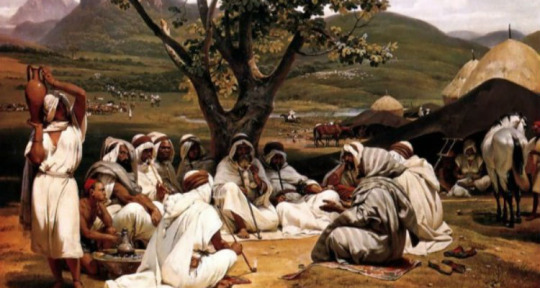
Let’s start with their founder Ibn Tumart, a fiery Berber mullah notorious for being ultra-conservative and opposing art, songs, mixing of sexes in public and the selling of pork and alcohol, which were a common sight in the Mahgreb at the time, and blamed this on the laxness of the Maliki authority. While the Maliki school of thought is one of the most rigid ones in Sunni Islam, Tumart’s problem was that they tended to rely more on jurist consensus rather than following the Sunnah and the hadith to it’s letter.
His entire life reads like a comedic sketch: his fiery preachings lead to him getting expelled by the local authority until he moves to the next town and the exact same thing happens. It’s said this even happened in Mecca when he performed the hajj being thrown out because of his screeching. On the way back, he sailed on a ship and began throwing out boxes of wine and lecturing the sailors to pray at the correct time, leading them to be fed up and throwing him overboard (they fished him back later).
When Ibn Tumart made his way back to the Maghreb, he stopped by the Almoravid capital in Marrakesh and assaulted an emir’s sister for going out unveiled. He was brought before the local authorities and defended himself saying that he was merely a voice of reform and lectured the local emir and his jurists like he has been doing from town to town. When countered that at least on points of doctrine, there was little difference between them, Ibn Tumart brought out more emphasis on his own peculiar doctrines. After a lengthy examination, the Almoravid jurists of Marrakesh concluded Ibn Tumart, however learned, was blasphemous and dangerous, insinuating he was probably a agitator, and recommended he should be executed or imprisoned. The Almoravid emir, however, decided to merely expel him from the city, after a flogging of fourteen lashes.
That was an extremely poor decision, because Tumart proceeded to retreat to a cave in Igiliz, which was an conscious effort to emulate Muhammad when he entered the cave of Hira, where he adopted an ascetic life. That is when he began to attract followers gaining the fame of an holy man and miracle worker. In 1121, Ibn Tumart lamented his failure to persuade the Almoravids to reform by argument and after a particularly moving sermon, he suddenly “revealed” himself as the true Mahdi, the redeemer of Islam expected to return towards the end times. This was effectively a declaration of war on the Almoravid state - for to reject or resist the Mahdi's interpretations was equivalent to resisting God, and thus punishable with death as apostasy.
Though they began armed rebellion in the very next year, they didn’t exactly manage to have a successful track record against the Almoravids despite their weakened state. In fact, the Almohads were nearly annihilated during the Battle of al-Buhayra where several top generals were killed and Tumart himself died not too long afterwards. The death of their spiritual leader should have marked the end of their movement, but it was his successor Abd al-Mu’min who picked up the slack and proved to be far more competent in warring. He managed to conquer Marrakesh, overthrow the Almoravids and formally establishing the Almohad state which extended over Northern Africa as far Mamluk-held Egypt and managed to lead a Islamic resurgence into Iberia (or Al-Andalus as it was known by Muslims) retaking some territories lost to the Christian states in the north.
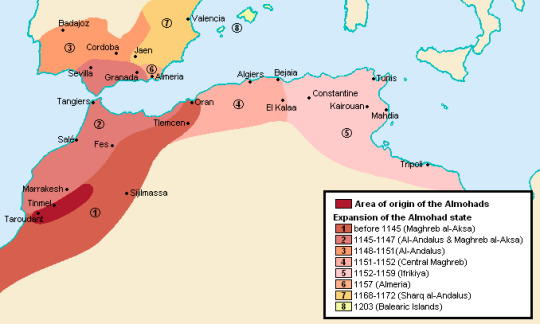
One of the things that distinguished the Almohads is that they rejected the doctrine of dhimmitude given to Christians and Jews living under their domain, allowing them to practice their religion on condition of submission to Muslim rule and payment of jizya. Sounds good right? No. The Almohads instead gave a choice to their non-Muslim subjects: convert to Islam or die. Except even those who converted were still forced to wear identifying clothing as they were not regarded as genuine Muslims. So imagine this scenario, dhimmitude is already a humiliating status, but now being forced to accept a religion they don’t want while having the same status as before is even more unbearable. Needless to say, this led to the mass martyrdom or exodus of many Christians and Jews.
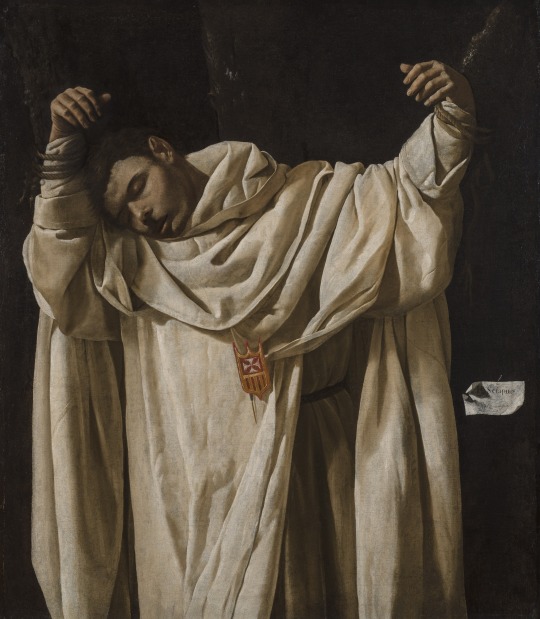
Rabbi Abraham Ibn Ezra, who himself fled the Almohad persecutions, composed an elegy mourning the destruction of many Jewish communities throughout Spain and the Maghreb under the Almohads. Among the notable Christian victims are the Franciscan friars John of Perugia and Peter of Sassoferrato, Saint Daniel and his companions Agnello, Samuel, Donulus, Leo, Ugolino and Nicholas, and the Mercedarian saint and priest Serapion of Algiers was persecuted when trying to free Christian captives. Non-Muslims were not the only victims of Almohad’s fanaticism: the famous Islamic philosopher Averroes who is held in high regard by Westerners today was accused of blasphemy for among many things, criticizing Muhammad’s treatment of women, and as such was exiled. It’s also perfectly plausible that many of the things deemed acceptable by the Almoravids (women uncovered, music, art, etc) were forbidden by the Almohads.
The darkest moment for Christendom came with the Battle of Alarcos, when an Almohad host led by Abu Yusuf Ya'qub al-Mansur decisively defeated the Kingdom of Castille and the knightly Orders of Santiago and Evora, killing over 30,000 into battle and leaving several castles deserted and many areas open to Islamic raidings. The Almohads were threatening to push north as far as possible and threatened to "march all the way to Rome and sweep the Basilica of Saint Peter with the Sword of Muhammad". This alarmed Pope Innocent III who called the European knights to crusade and served as basis for this song as by bard Gaudavan as rallying cry to help the Iberian Christians.
youtube
This ultimately culminated in the Battle of Las Navas de Tolosa where King Alfonso VIII of Castille - the same one beaten in Alarcos - led the Christian host of 14,000 men (Portuguese, Castillans, Templars, Germans, French and others) against the Almohad caliph Muhammad al-Nasir, who had more than twice with 30,000 men in his command. Despite the impossible odds, the Christians managed to win (check this video for the details).
youtube
This defeat was a decisive point in the Reconquista, as the Almohad power was broken and they would never recover, with their territories breaking up into petty kingdoms (or taifas). It also marked the downfall of Islamic rule, since from now on Christians - more specifically Spaniards - would retake almost all their lands. Just before their end, the Almohads would ditch their doctrines in favor of more traditional ones and repudiate Ibn Tumart as the Mahdi, but their end came when their final pretender Idris al-Wathiq was killed by a slave and his possessions were later taken by the Marinid Sultanate who would try to take Iberia again, but they were soundly beaten in the Battle of Rio Salgado by the now much stronger Portuguese and Spaniards (though them taking the sultan’s entire harem and putting them to the sword may have done the trick).
So now you might be asking me now: why is this all relevant to the Islamic State? You see, their founder Abu Musaib al-Zarqawi was sorta kinda like Ibn Tumart, except he Zarqawi was a petty thief and a pimp rather than a scholar. His views were radical even by Salafi jihadists’ standards, urging the death of Shia Muslims more than the Christians and Jews. Osama bin Laden himself, at least thought as such and never particularly liked Zarqawi whether for personal reasons (Bin Laden’s own mother being Shia herself) or pragmatic ones (Zarqawi’s actions could divide Muslims more than unite them). And just like Ibn Tumart, he never lived to see the Islamic State (or Al-Qaeda in Iraq as it was known in his lifetime) become the nightmarish menace to everyone.
There are of course many obvious differences: ISIL apparently made a point to adhere to the dhimmi contract as far as the Assyrian Christians were concerned while the Almohads ditched it altogether. Or that Zarqawi never claimed to be the Mahdi, nor did his successor Abu-Bakr al-Baghadadi to legitimize themselves. Though there are many important parallels: ISIL was in essence an apocalyptic group just like the Almohads followed the Mahdi, whose presence marked the end times. They viewed the events in Syria and Iraq as the fulfillment of the prophecies about the end times and heavily derived their narrative from it. Their initial propaganda magazine Dabiq was named after an town where a hadith claims a great battle will occur between the Muslims and the Romans where the apocalypse will take place and Muslims will emerge victorious. The “Romans” in this case represent the West, which is why they carried out incessant attacks to provoke Americans and Europeans to fulfill this prophecy.
The Almohads emerged during a period here they perceived Islam had decayed and needed reform or rejuvenation which is an rhetoric used by ISIL, but not necessarily exclusive to them. It’s somewhat reasonable to understand the Almohad Caliphate is not as well-known or prominent as other empires like the Umayyads or the Ottomans, since they are more important to local history, but I think we’d benefit more if we paid attention more.
16 notes
·
View notes
Text
Everybody is entitled to their opinion, but honestly, I think that people are being unnecessarily harsh on the outcome of the final season. Yes, it was rushed, I don’t think anyone can argue against that, but a majority of the character arcs were consistent and a good culmination of their stories.
Little Lyanna spoke of her loyalty and devotion to the north, her ability and desire to fight to protect her people and her homeland, and she died heroically in battle, fighting until the last second.
Jorah’s heart and soul belonged to Daenerys and he died in battle saving her life. There is no better end for him.
Beric, after being brought back by the God of Light multiple times, finally served his purpose in saving Arya’s life so that she could in turn kill the Night King and save the world.
Edd died protecting the realms of men, just as he swore to as a brother of the Night’s Watch, and saving the life of his best friend.
Melisandre spent seasons talking about destiny and the God of Light, and died after her life’s purpose, having helped win the battle and set Arya on the path to kill the Night King, just as she was destined to do.
Varys spun endless webs, gossiped, schemed, jumped from monarch to monarch and changed his loyalties all in service of the realm. In the end, his own brazenness in trying to assassinate Daenerys resulted in his downfall and he died standing up for what he believed was in the best interests of the realm.
Samwell, one of the most intelligent and kindest characters on the show achieved his dream of becoming a Maester and served under Bran Stark, his best friend’s brother-cousin. He also had a happy ending with Gilly, Little Sam and his unborn child, after having been estranged from his family for years.
Tormund is just well...Tormund haha. After fighting alongside Jon in the Great War, he returned to the north with the Wildings where he belonged. I don’t think anybody can complain about his ending. In fact, it might be the one ending that all the fans agree is a good one.
Theon sacrificed himself in defence of his home and Bran Stark, thereby redeeming himself for the betrayal he committed against House Stark. He believed he should’ve died in battle fighting for Robb Stark, instead he died in battle fighting for Bran Stark. His sacrifice and bravery meant he died a an honourable death and a true Stark.
Gendry grew up as a bastard, isolated and with no family. He got to experience what it was like to be with the woman he loved, if only for a short time, and there’s the potential that he may see her again in the future and have the opportunity to create a family with her. His bravery in going beyond the Wall and fighting in the Battle of Winterfell was rewarded with him being legitimised and being made Lord of Storm’s End.
Brienne was one of the greatest fighters in Westeros who defeated the Hound in combat. She became the first female to be knighted in the history of Westeros and was named Lord Commander of the Kingsguard under Bran Stark, Catelyn Stark’s eldest remaining true-born son, whom Brienne pledged herself to serve. She experienced unrequited love with Renly, but had a taste of reciprocal love with Jaime, a man whom respected, admired and loved her for the incredible woman she was. It may not have lasted, but Brienne’s relationship with Jaime went beyond romance - her meeting Jaime and her experiences with him are the reason why she ends the series where she does as Ser Brienne of Tarth, Knight of the Seven Kingdoms and Lord Commander of the Kingsguard.
Sandor was so twisted up and consumed with revenge that the only possible ending for him was to die exacting his revenge on his brother, and that’s exactly what he did. He bowed out having achieved his life-long ambition and rather ironically and poetically died by fire. Before he did that, he was able to reach out to Arya, whom he saw himself in, and convince her to choose life instead of revenge, a choice which he was too far gone to make.
Tyrion battled against love and duty, and ultimately chose love. He was willing to sacrifice his life to stand up against injustice and was the puppet master behind Jon’s decision to execute Daenerys for the purpose of the greater good. He was always supposed to play a hand (excuse the pun) in establishing a new political/world order. He’s an efficient, intelligent, cunning and moral man capable of justice and fairness. He’s experienced in politics and has much to offer the realm, and him serving under Bran the Broken is a poetic call back to his love for “bastards, cripples and broken things”.
Cersei has been one of the greatest villains of the series. Her stubborn refusal to relinquish her crown resulted in the decimation of the city and the ultimate price for her arrogance and inability to show mercy was the destruction of all that she held dear, including her life, Jaime’s life and the life of her unborn child.
Jaime kept his pledge to fight for the north and proved that he was honourable. He reconnected with Tyrion and experienced a taste of what healthy love looks like with Brienne. He got the opportunity to bestow the greatest gift he could upon Brienne in the ultimate demonstration of love, respect and admiration. He apologised to Bran for his mistakes and redeemed himself once again. His decision to return to Kings Landing was the only feasible outcome for him, since Cersei (and his unborn child) was ultimately the most important thing in the world to him. Just as Tyrion had a choice between duty and love, so did Jaime, and both Lannister brothers chose love. In the end, Jaime’s story wasn’t about redemption or becoming the better man, it was about him accepting that whether he likes it or not Cersei is everything to him and his fate is bound to hers. That doesn’t automatically undo all of the good that he did, it’s simply him embracing his true self and accepting it wholly. Jaime died in the arms of the woman he loved, leaving the world as he came into it, with Cersei.
Arya spent years training to be an assassin in Braavos and is one of the most cunning, quick-witted and skilled fighters and killers in Westeros. The hard-work and training she undertook equipped her with the skills to be able to kill the biggest bad of the series - The Night King - and save the world from death and destruction. She reunited with her family who she had been separated from for 7 seasons. She got to experience tenderness and intimacy with Gendry, a man whom she had a profound connection and history with and who loved her. But in the end, she stayed true to herself and instead of conforming to the traditional expectations of her as a lady of a great house, she pursued her own adventure in the wide world just as she said she would in season 6.
Sansa’s entire arc has been about resilience, overcoming adversity and playing (and winning) the game of thrones. Shaped by her mentors (Cersei, Margaery, Littlefinger etc.) and her experiences, she found pride in her homeland and House Stark’s legacy, and devoted herself to fighting for it. After ruling the northerners for an entire season and struggling for northern independence, she was crowned Queen in the North. There could’ve been no better outcome of Sansa’s story.
Bran is all-knowing, all-seeing, wise, omnipresent, high born and fair. As a child he ruled in Winterfell in Robb’s absence and as the Three Eyed Raven, the knowledge he has would be invaluable in ruling over the Seven (or Six) Kingdoms. Bran is probably the only person in the whole of Westeros that cannot be corrupted by power and his belief in a grander purpose and disregard for the pettiness of traditional politics makes him a fitting king for a new world order.
Jon spent season after season dodging power but being bestowed with it against his will. After being pushed forward as Aegon Targaryen heir of the Seven Kingdoms repeatedly throughout the season, he remained loyal to his queen and rejected his claim. He remained true to his honour in the battle in Kings Landing and refused to partake in the genocide of innocents. When faced with a terrible choice between duty and love, Jon (unlike Jaime and Tyrion) chose duty. He put a sword through Dany’s chest for the sake of the whole of Westeros. Jon returned to the true north, where he always felt most at home, casting aside the Westerosi politics and titles he’d never cared for to live a free life in the wild with Tormund, Ghost and the Wildlings.
Daenerys, oh my sweet, Dany. She spent seasons dedicated to one goal - the Iron Throne - but along the way her dream of breaking the wheel, liberating the oppressed people of the world and creating a new pure world became corrupted by her experiences and her power. She vowed to take what was hers with Fire and Blood, to lay waste to cities and armies with her dragons, and that’s exactly what she did. Her vision for a new world order was not the one that was needed. It was one that would only have led to more war, death, tyranny and fear. Her death was not only necessary, but enabled the rebuilding of a new world with the purpose of being better for all the people of Westeros.
Admittedly, not all of these endings are perfect but all of them are somewhat consistent (albeit rushed and somewhat anti-climatic) with the character development we’ve seen across the series, even if they’re not the endings that we would’ve ideally chosen.
#got spoilers#got s8 spoilers#got s8#game of thrones#got meta#my meta#mine#text post#yeah....i just thought the fandom could do with more positivity tbh#i'm not happy with a lot of what happened#but a lot of it DOES make sense#and i think if we'd had another season to develop it properly#people would be a lot happier with the finale that we got
41 notes
·
View notes
Text
Homestuck Epilogues - Meat - Page 16 (Epilogue 3 Page 3)
4 notes
·
View notes